- Bwindi Impenetrable National Park
- Kibale Forest National Park
- Kidepo Valley National Park
- Lake Mburo National Park
- Mgahinga Gorilla National Park
- Mount Elgon National Park
- Murchison Falls National Park
- Queen Elizabeth National Park
- Rwenzori Mountains National Park
- Semuliki National Park
- Lake Bunyonyi
- Lake Victoria
- UNESCO Heritage Sites
- Gorilla Trekking
- Bird Watching
- Chimpanzee Tracking

Community Tourism
- Gorilla Habituation Experience
- Mountain Hiking
- About Uganda
- Driving in Uganda
- Getting Here
- Travel Visa
- Ugandan Economy
- Ugandan Real Estate

Community tourism is a sustainable form of tourism that allows visitors to closely connect with the local communities visited. It aims at strengthening the relationships between the host country and the visitors, fostering opportunities for the local people wishing to engage more in the tourism industry.
Most Safaris in Uganda have mostly been offering wildlife experiences, white water rafting and views of the beautiful sceneries. Probably all tourists in Uganda have majorly come for gorilla trekking in Bwindi impenetrable national park, but there is much more that Uganda can offer other than wildlife.
With the increasing number of tourists perceiving Uganda as a unique and thrilling tourism destination, there is no better time for community tourism to blossom other than now. A form of tourism that supports community development in partnership with tourists.
Community tourism in Uganda includes tours, performances, workshops, dining, accommodation and homestays presented by the local people. And a percentage of the income from tourists in these communities is often put into community funds.
The Uganda Community Tourism Association (UCOTA) frontiers the development of community based tourism in Uganda. It helps local communities to better their lives through selling handcrafts, traditional performances, provision of accommodation and tour guiding.
UCOTA in conjunction with the tour operators of Uganda work tirelessly to promote community based tourism. So every time travelers buy UCOTA product, they are building lives of the people in the hosting local communities.
Community tours in Uganda offer visitors a unique and authentic experience of Ugandan lifestyle. Feed on the local food, play with the kids, meet the villagers on community walks guided by experts who have for long lived here, if not the whole of their lives. Also directly engage in village projects like school or clinic construction by working with the construction team or you can even donate to the project.
Uganda community safaris present thrilling experiences to the travelers as well as enabling the generated revenue from tourism to remain in the rural and poor communities. Village projects operate small enterprises like craft making, music, dance and drama managed by local people hence creating job opportunities in the regions.
For community ecotourism is a particular feature of community based tourism and most of the activities are natural resource based, benefiting both environmental conservation and local communities. It encourages both cross cultural understanding between the host and visitor as well as environmental protection.
Uganda’s major community tourism destination is Bwindi impenetrable national park. A cultural walk gives visitors a taste of the Ugandan lifestyle. Meet the local people and see the way of life through their eyes. Visit the traditional healer as well as Dr. Scott’s clinic. A taste of the local food and a homestay is a guarantee except to those that don’t want to.
Other community tours in Uganda go to the Ankole Cultural Center surrounding Lake Mburo National Park, the salt plains and fishing villages in Queen Elizabeth national park, Bigodi wetland outside Kibale national park and many other communities.
Indeed, community trips in Uganda furnish once in lifetime experiences, exploring the African authenticity from its roots than any other safari in Uganda can offer. It’s high time you booked your trip to Uganda and visit a community.
Experiences
Top 5 Cultural Attractions in Uganda
Mountain Biking Around Uganda
10 Geeky Things to Do in Kampala
Go Gorilla Trekking in Mgahinga National Park
Visiting the Mountain Gorillas in Bwindi Forest
Experience Mountain Gorilla Trekking in Bwindi
5 Amazing Things to Do in Budongo Forest
Journey to Explore Rwanda’s National Parks
Things to Do in East Africa
Holiday at Lake Bunyonyi in Uganda
Editor picks, kampala’s oldest buildings, a walk into history: singer akon shot the mama africa song, bakiga, the descendants of kashyiga, popular posts, uganda’s natural hair revolution, common uganda traffic signs & their meanings, 13 books by ugandan writers you should read (fiction): part 1, popular category.
- Lifestyle 41
- Travel Guide 39
- Experiences 31
- Uganda Innovates 29
- Attractions 21
- Technology 16
Skip to Content
UTA Memebers
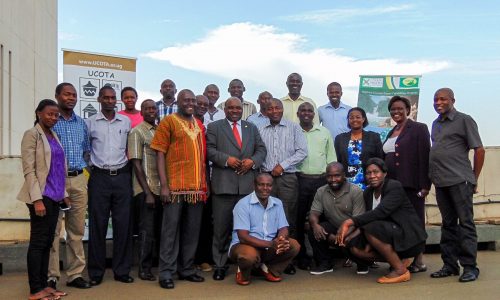
UCOTA UCOTA was formed in July 1998 to promote community-based tourism in Uganda. It is an umbrella national not-for-profit making organization and her membership is drawn from individuals and groups involved in community-based tourism enterprises (CBTEs) across the country. The majority of members are located along the fringes of major national parks, game reserves and central forest reserves in Uganda. In November 2004, UCOTA was incorporated under the laws of Uganda as a non-profit company limited by guarantee.
In 2015, UCOTA had over 70 members, consisting of 4,245 individuals of whom 56% were women. Out of 70 member organisations, 25 are initiated, led and owned by women. UCOTA members run small community-based tourism enterprises such as accommodation, catering, tour guide, cultural music, dance and drama, community interaction and handcraft sales among others.
Chairperson: Patrick Tumwijukye +256776 967 277 Executive Director: Hellen Lubowa +256772 417246 [email protected]
News & Updates


Uganda Community Tourism Association
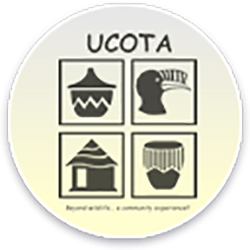
Uganda Community Tourism Association (UCOTA) is the official umbrella body that brings together and advocates for the interests of community tourism groups in Uganda to ensure that the local tourist host communities benefit from tourism.
Since its inception, UCOTA’s functions and scope of operations have grown tremendously across the country. To date, the association comprises over 70 member groups country wide, representing 2,121 individuals of whom 63% are women. The groups operate small tourism enterprises ranging from Traditional/ basic accommodation, interpretive guiding services and restaurants to craft shops, music dance and drama performances.
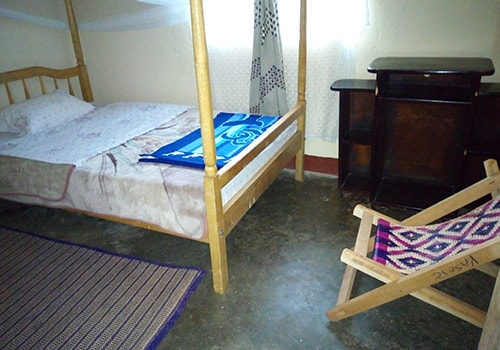
The impact of the community tourism group enterprises to the livelihoods of the locals is already manifesting through a number of community projects supported by the groups by way of responsible tourism such as construction of clinics, schools, provision of safe water and literacy programs.
To spearhead sustainable Community Based Tourism in collaboration with stakeholders in a bid to enhance community benefits, promoting quality standards, ownership and conservation of natural and cultural resources for better livelihoods.
To see Uganda as a vibrant community tourism destination positively contributing to the livelihoods of people in the country.
OUR ACTIVITIES
Capacity building: UCOTA trains her members in various fields of tourism development such as business skills, interpretive guiding, bird watching, hospitality, handcrafts, group dynamics, site management, conservation of natural and cultural resources.
Our Marketing is done through the Pearls of Uganda program and other promotion campaigns and initiatives such as creating linkages between UCOTA members and tour operators in order to ensure that UCOTA members’ products and packages are featured into tour operators’ itineraries and tourism promotional activities such as social media campaigns,production and dissemination of brochures. UCOTA also plays a role in coordinating, encouraging and ensuring that members participate in both local, regional and international tourism fairs, giving them a platform to showcase and sell their products and services.
Advocacy: As the umbrella body , UCOTA has created a platform for members’ voices to be heard at all levels.
Networking: UCOTA’s broad network brings members, partners and stakeholders together, creating a forum for dialogue and enabling members to create business connectivity amongst themselves and opening up to the vast opportunities and lessons that they can learn from each other.
Conservation: At UCOTA, we underscore the importance of conservation of natural and cultural resources which communities utilize as tourism resources (attractions) for sustainable livelihood, project sustainability as well as minimizing negative environmental impact.
Resource mobilization: In a bid to ensure sustainable operations for both the organization and it’s members, UCOTA engages in fundraising activities.
Board of directors
The UCOTA constitution mandates the executive committee with the responsibility for giving strategic direction for the organization, resource mobilization for sustainable operations and ensuring effective management as well as safeguarding and promoting organizational values and helping in membership growth.
Staff members
The strength of UCOTA greatly lies in our warm and hospitable staff team that possesses vast combined, decades of experience in community based tourism. The team has expertise in product development, community mobilization, capacity building, conservation, and community networks. Our staff team is currently composed of six full time staff members as given below;
- Executive Director – Helen Lubowa
- Field Officer – Felex Kamalha
- Field Officer – Paulo Lubega
- Accountant/Administrator – Jennifer Magala
- We always get two volunteer staff every year from East Africa.
Being one of our core activities, UCOTA organizes and conducts trainings for both its members and non-members in a range of activities/ topics basing on the training manual. The common topics of the trainings we conduct include;
- Community enterprise concept development
- Community business plan development
- Community operations planning
- Community interpretive guiding and tour planning
- Community product sales and marketing
- People of Uganda/ ethnicity
- Product development (Tourism and handcraft)
Consultancy
Having been in the field for more than a decade with a multitude of knowledge from our experienced staff, UCOTA offers consultancy programs and services to clients and stakeholders at an affordable and negotiable fee. Our consultancy services are multidimensional but mainly focus on the fields of tourism, project management and community programs among others.
Uganda Community Tourism Association
Call a us 24/7 at 256-782-915-447
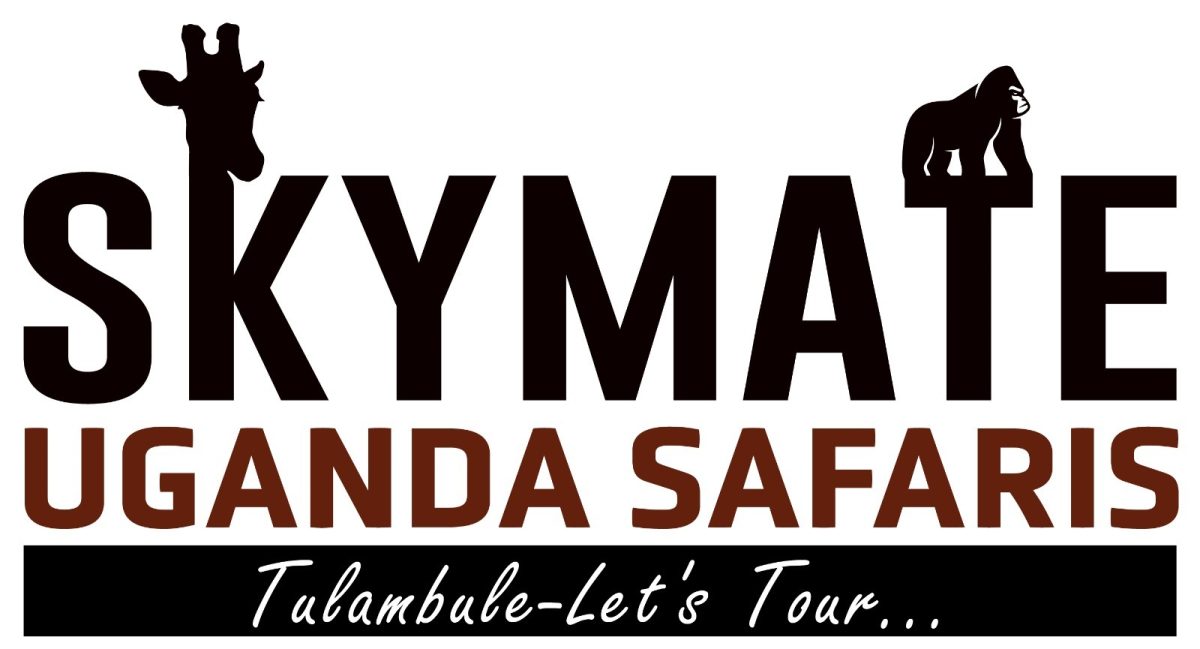
Table of Contents
Community-based tourism not only provide a true insight into local lives, but also ensures your travel experience has a meaningful impact on local people. At Tulambule, we support Community-based tourism and when we visit the communities on our Uganda safaris our clients have the opportunity to connect with the local people and make a positive impact.
What is community-based tourism?
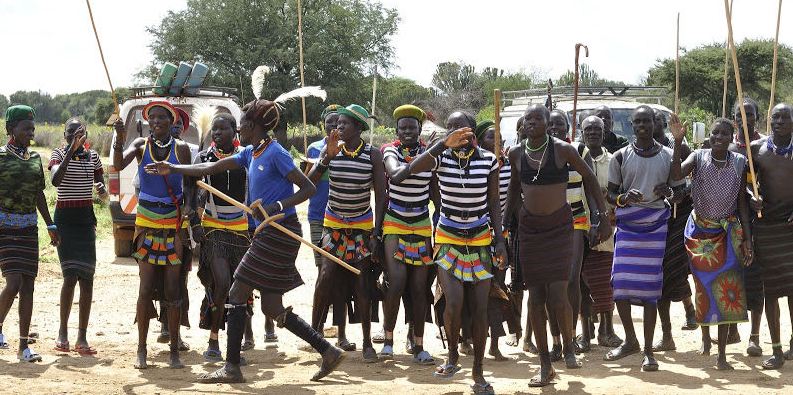
Community-based tourism is tourism that ensures that local communities have complete ownership and management of the tourism experience, ensuring economic benefits of tourism remain in their community. This type of tourism is intended to provide tourists with an authentic taste of a local community’s heritage, their cultural traditions and natural resources, providing an immersive and rich travel experience.
Benefits of Community-Based Tourism
- Economic: Community-based tourism creates jobs and generates revenue while limiting money that leave the community. It also contributes to the diversification of economic activity beyond farming, which decreases risk in years when climate change results in little or no harvest.
- Shared value: Within community-based tourism, there is a distribution of benefits to all households. For instance, while not all families will host homestays some may act as guides or provide meals. Even those not directly involved in tourism benefit from the agreed use of the community fund.
- Social: Community-based tourism provides people with skills-training, opportunities for community infrastructure development (power, roads, sanitation, schools, water) and health benefits (water and waste management education). It also promotes a more equitable community structure and the association with foreign travellers helps raise confidence and pride among the people.
- Environmental: Conservation of the environment, awareness and wildlife protection are also great benefits of community-based tourism
- Female empowerment: One of the greatest benefits of community-based tourism is the empowerment of women in the community, as they are often largely responsible for the management and generation of the experience and therefore income.
- Preservation of culture: Community-based tourism can also prevent young people in village to leaving for larger cities, by providing employment opportunities for them locally.
Community-Based Tourism Experiences Uganda
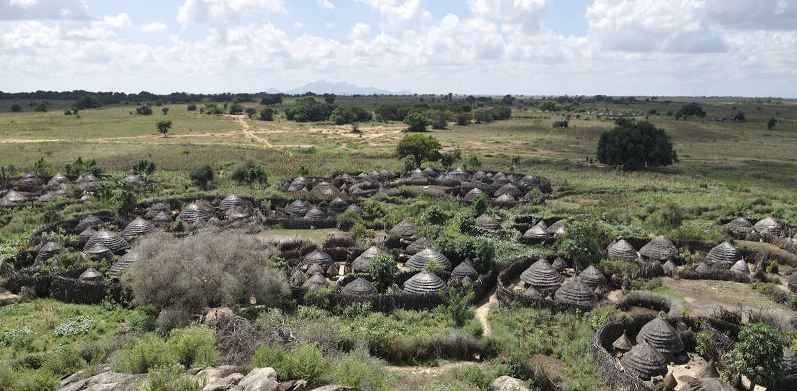
Uganda is culturally diverse country with 40 languages, countless customs, traditions, superb crafts and uplifting music and dance.
As tourism grows here, so too do the chances for the local people to get involved in tourism. There is several example of community based tourism in Uganda, which ensures that your money stays in the country and reaches the people who need it most.
Most tourism in Uganda takes place in national parks with official guides – which shut local people and businesses out. But by looking beyond the wildlife parks, even for just a couple of days of your Uganda safari, your money will go much further, and you’ll totally shift your opinion of Uganda as a place to see wildlife .
Here are some of the genuine community based tourism projects in Uganda:
1. Bigodi Tourism - KAFRED
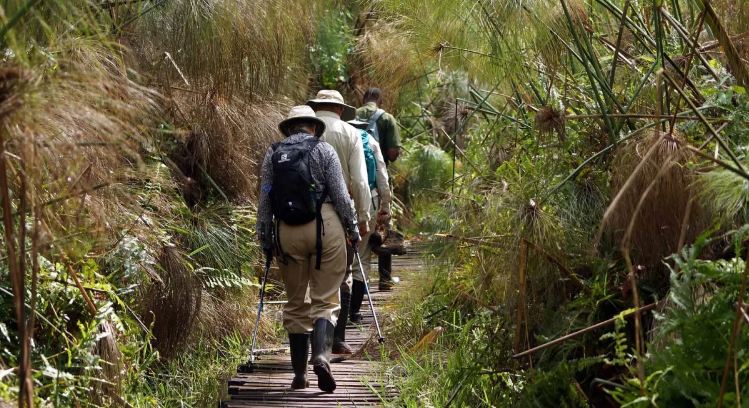
For more than 20 years, Bigodi Village in Kamwenge District in western Uganda has experienced a transformative impact on the lives of its residents through community-based tourism initiatives.
With the Kibale Forest National Park nearby, tourists began visiting the area in the 1990s, opening up new opportunities for the locals to engage in various enterprises.
On the edges of this Uganda chimpanzee trekking destination is the Bigodi Wetlands Sanctuary. This wildlife-rich wetland is one of the community-run initiative in the area.
The wetland sanctuary is managed by an award winning Community Based Organization (CBO) called KAFRED, with the aim of conserving the unique biodiversity and environmental values of the wetlands. Here, you can have:
- Interpretive guided nature walks (2-3 hours) through the Bigodi Wetland which is home of 8 species of primates and over 200 species of birds.
- Interpretive village walks (3 hours) through the village of Bigodi that “home of two tribes”; the Batoro and Bakiga
- Traditional Kitooro food tasting, watching local dancers, buying handicrafts and staying overnight in a community home.
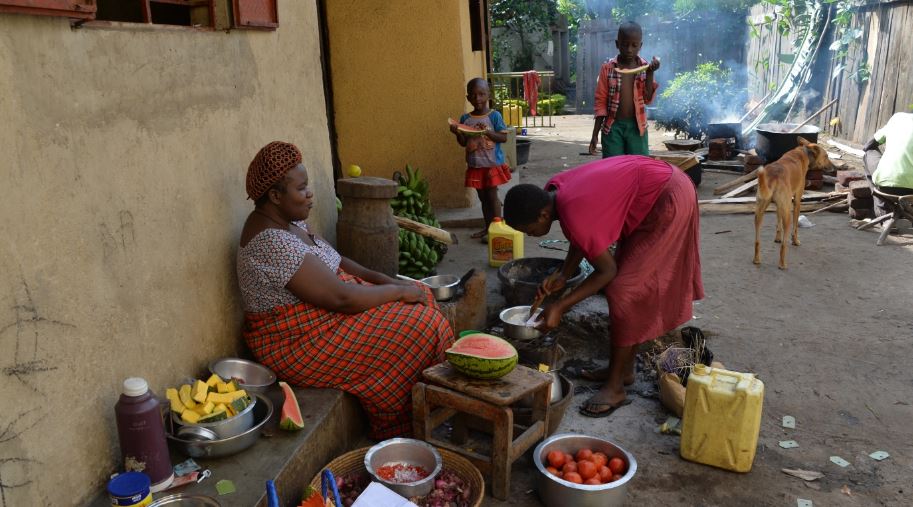
Who is KAFRED? And how do tourists support their community?
KAFRED means Kibale Association for Rural and Environmental Development. It is community based organisation that strives for the conservation of biodiversity and the development of its local community through ecotourism and other environmentally sustainable business.
It was established in 1992 and has been actively promoting conservation by reinvesting tourism revenues into diverse community development projects. Examples of community projects funded KAFRED thanks to tourism revenue include:
- Construction and management of Bigodi Secondary School and Bigodi Primary School
- Support of Bigodi Health Center III
- Employment and training for local people as tours guide
- Training women in handcraft product development and marketing of quality crafts
- Setting up of a fund for families affected by crop raiding animals (such as elephants or primates)
- Support of a school conservation education program – UNITE – in collaboration with North Carolina Zoo
- A scholarship programme for students from families that cannot afford further education.
- Help to initiate other local business endeavors such as Bigodi beekeeping and fish farming
2. Entanda Cultural Experience
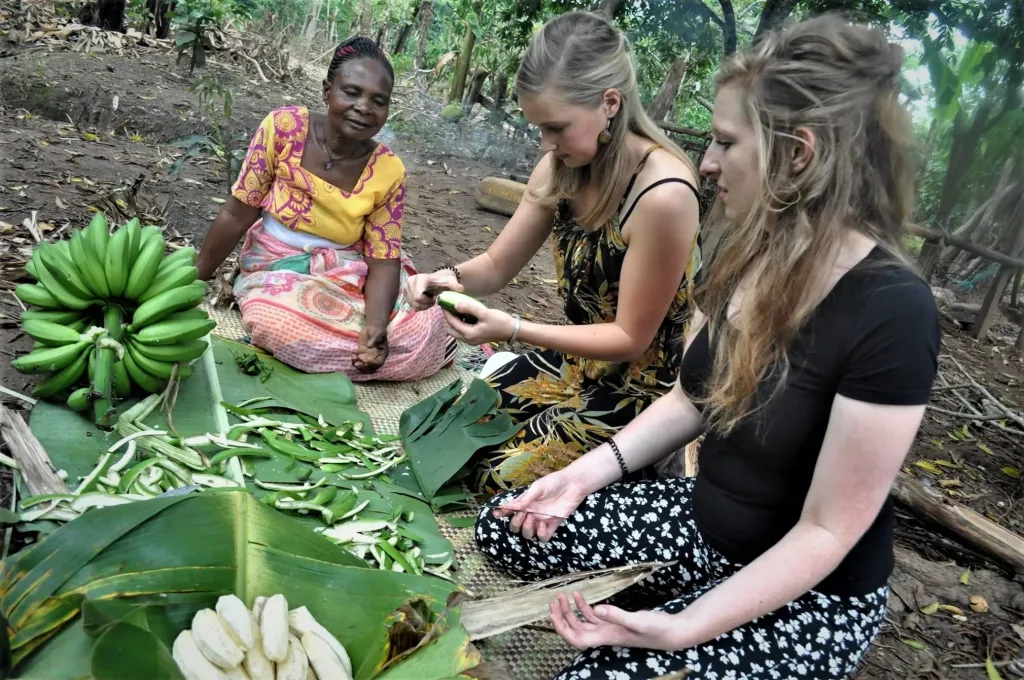
Entanda Cultural Experience is a community-based tourism organization in Mityana town, offering the best cultural adventure near Kampala City. The initiative is found Ssekanyonyi Sub-County. The village has around 400 homesteads with close to 2000 residents.
The Entanda Cultural Experience was established in 2014 under the guidance of Dr Celestine Katongole, a tourism lecturer at Makerere University Business School (MUBS). Here you can get an insight into the local culture through a range of activities;
- Listen to the sekitulege, a musical instrument played only by adults
- Meet a bark cloth maker to learn about traditional bark cloth clothing in Buganda (a Bantu kingdom within Uganda)
- Take a walk through the nearby bushland with the senior ssenga (aunt) and learn about local medicine and herbs.
- Enjoy fresh, authentic luwombo, a traditional Ugandan dish cooked in a banana leaf pouch, once served to royals centuries ago.
- Eat your meal the traditional way, with your hands, sitting on mats in a circle.
- Try the locally-processed medicinal wine made from herbs and tree bark.
- Join a soccer match between the villagers and visitors
- Test your archery skills, or try roasting goat meat.
- Witness traditional wrestling, a sport played for centuries in Buganda.
- You can even wrestle the oldest villager, aged over 70. If you can win, you get a special prize.
3. Batwa Cultural Trail at Mgahinga
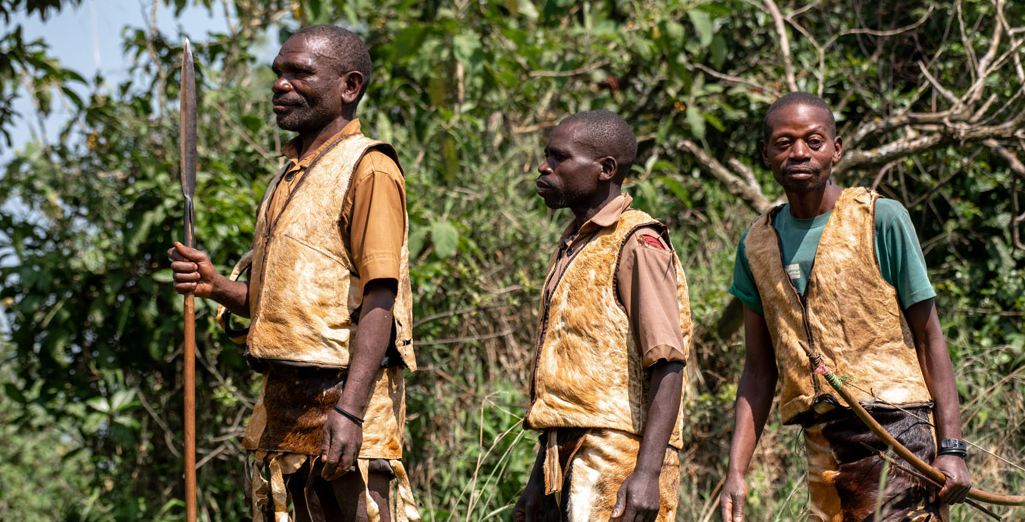
Tourists are may be drawn to Mgahinga Gorilla National Park by the chance to see the endangered mountain gorillas , but there is another reason to visit: the Batwa.
On the fringes of the park are the last remaining members of the endangered Batwa Pygmy tribe that once thrived in this montane rainforest jungle.
A visit to their community is not only a way to learn more about these former hunter-gatherer’s traditional forest practices, but a way to support a people whose ancient way of life has been almost completely wiped out by modernity.
Here, you can embark on the Batwa Cultural Trail, a gentle 5-hour nature walk through the forest in company by community Batwa guides who will show you how they forage for food, trap animals with snares made from branches, and make tools and medicines out of plants.
4. Buhoma Community Haven Lodge
There are local lodges and guesthouse owned by individuals or communities in Uganda, such as the excellent Buhoma Community Lodge near Bwindi Impenetrable National Park.
Staying in a community-owned accommodation on your Uganda safari does not necessarily mean you will be roughing it; Buhoma Community Lodge one of best midrange lodges at this Uganda gorilla safaris park.
Established in 2014, Buhoma Community Haven Lodge was constructed by the Buhoma Mukono Community Development Association. This association was founded in far back in 1993 with the aim of improving social economic income of the communities in Mukono parish by improving health, education standards, empowering women, conservation through creation of a sustainable resource base in our communities.
All revenues earned from the guests at the lodge is ploughed back in the communities by supporting schools, water projects, women groups, and sponsoring needy students in the communities.
5. Ride 4 a Woman - Buhoma
Ride 4 a Woman is a charitable organisation set up to support and empowers women struggling with HIV, poverty and domestic violence in the community of Buhoma near Bwind. The Trust offers ongoing support by buying, using and selling their locally made products and taking clients to visit their projects. Here, you can tour the shop full of handmade fabric products, including handbags, dining table covers, and iPad cases.
The organization also have expert basket weavers at the center, where you can join them in a 2-3 hour baske weaving lesson. For more information on the great work Rid 4 A Woman initiative do and the activities guests can take part in, check out their website here.
6. The Batwa Experiences at Buhoma, Bwindi
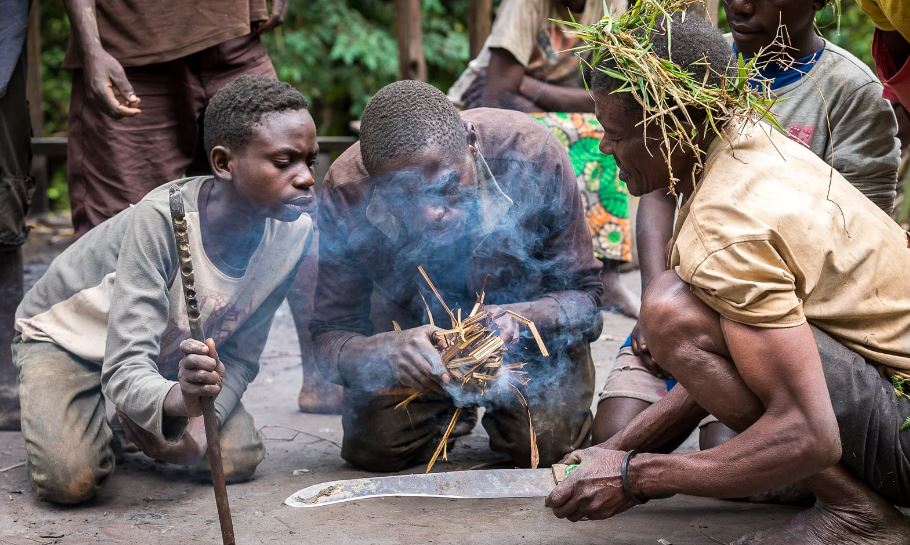
We also support visitors participating in the Batwa Pygmies Cultural experiences at Bwindi created as part of the Batwa Empowerment Village (BEV) and community cultural visits. This also offers many different experiences including a cultural encounter in the forest with the local Batwa people as guides to learn about their former hunter-gather lifestyle.
You learn about how they lived and hunted in the forest, learn about medicinal plants and watch for animals and birds.
You may choose to share a traditional meal with the Batwa People, hear ancient traditional songs and legends or join in a mock hunting party. You can even test your skill with a Batwa bow and arrow and participate in their fascinating traditional dances.
7. Kataara Women’s Group
A safari to Queen Elizabeth National Park is not just about viewing wildlife and landscapes – it is also a chance to immerse yourself in the fascinating local culture.
Responsible travel is at the heart of any Uganda wildlife tour to Queen. Engaging in community-based tourism initiatives in Uganda allows you to support these sustainable tourism practices and contribute positively to the well-being of the local people.
A perfect community to visit is the Kataara Women’s Poverty Alleviation Group (KWPAG) near Queen Elizabeth National Park in Katara Village.
The women here make a living out of elephant dung papers from which they make different products like necklaces, beads, books, and folders.
This is possible because of an agreement with Uganda Wildlife Authority (UWA), that permitted them to access the resources necessary for their activities from Queen Elizabeth Park. But that is not all.
For climate change adaptation they have also set beehives at the park border to reduce human-elephant conflicts in the community, and has also improved women’s income to harvest honey for sale including cross-pollination of community crops to increase crop production thus boosting income for the local community after the sale of surplus food.
Other things they do include selling coffee from their own plantation and weaving.
If you’re into a cultural experience and would like to give back to the community, this is the best cultural thing to do.
8. Ishasha Community Uplift Group
The Ishasha Community Uplift Group’s livelihoods are focused on subsistence farming.
This group is found in a small rural community, close to the edge of Ishasha Sector in the south of Queen Elizabeth National Park . Local people here face daily challenges including crop raiding by animals as they work towards earning a living to support their families.
In spite of living hand to mouth, some members of the community have established a Savings and Credit scheme towards which they contribute regularly, allowing them to build up funds for investments in additional land and income bearing projects such as chicken rearing. They also offer an educational tourism activity for guests which bring in much required income – Agartha’s Tate of Uganda tour .
Agartha is a craftswomen, tailor and subsistence farmer who welcomes visitors into her homestead and shares with you how the women in Bakiga tribe keep their home and prepare their local food. During the tour, Agartha takes in stories of life as a Bakiga wife while encouraging you to taste what you have prepared together.
9. Community Coffee Tours in Kapichorwa

When visiting Sipi Falls or Mount Elgon National Park in Eastern Uganda you have a great opportunity to take a coffee tour with the local farmers.
The farmers will take you through the process of planting of the coffee from the nursery beds, into the coffee trees and harvesting.
You’ll learn about the ins and outs of organic Arabica coffee. On a coffee tour you will also see how coffee beans are harvested, dried, roasted to make delicious coffee.
If you would like to support the local farmers, you can do by purchasing some coffee to take back home. This coffee tour helps in supporting the farmers who are also proud of showing their specialty in coffee production.
10. Boomu Women’s Group
Boomu Women’s Group is a community-based tourism initiative found in the Village of Boomu in northwestern Uganda.
It is located on the road to Murchison Falls National Park , just a few hundred meters ahead of the park gate, 8km from the chimpanzee trekking site in Budongo Forest .
The group was founded in 1999 by women from the village who wanted to create sustainable livelihood opportunities for themselves and their families while preserving their cultural heritage. They offer a range of cultural activities, including guided village tours, traditional music and dance performances, craft making, and cooking lessons.
Visitors can also opt for a homestay with a local family to experience daily life in the Village and learn about the local culture and traditional.
Our trips with community-based tourism experiences
At Tulambule, we offer tours that involves community activities and we aim to ensure they are authentic and noninvasive as possible for the people involved.
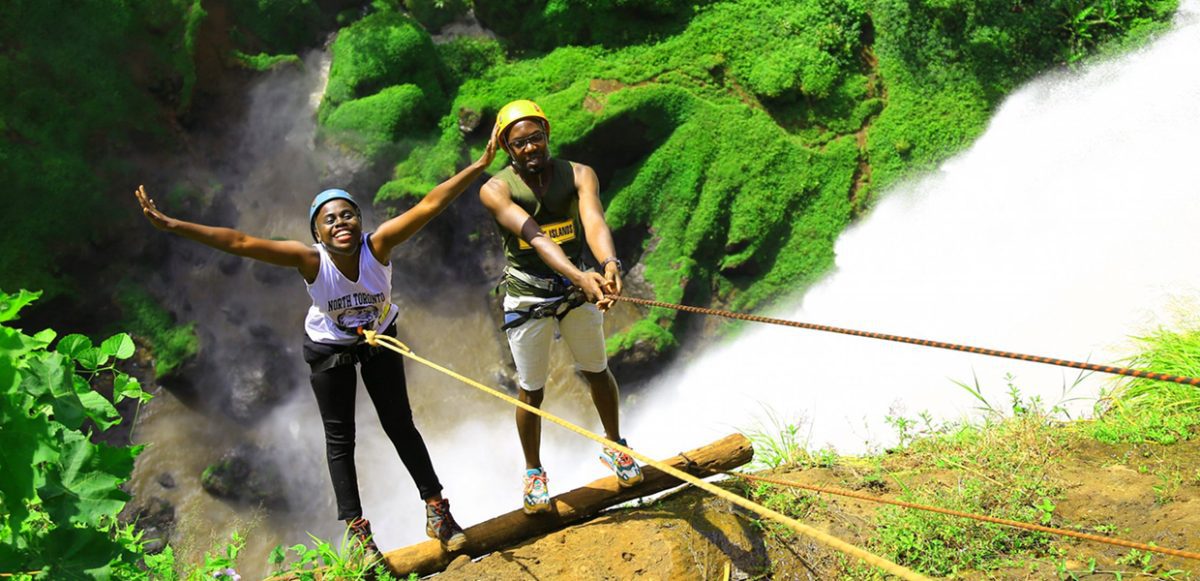
3 Day Sipi Falls Tour Itinerary
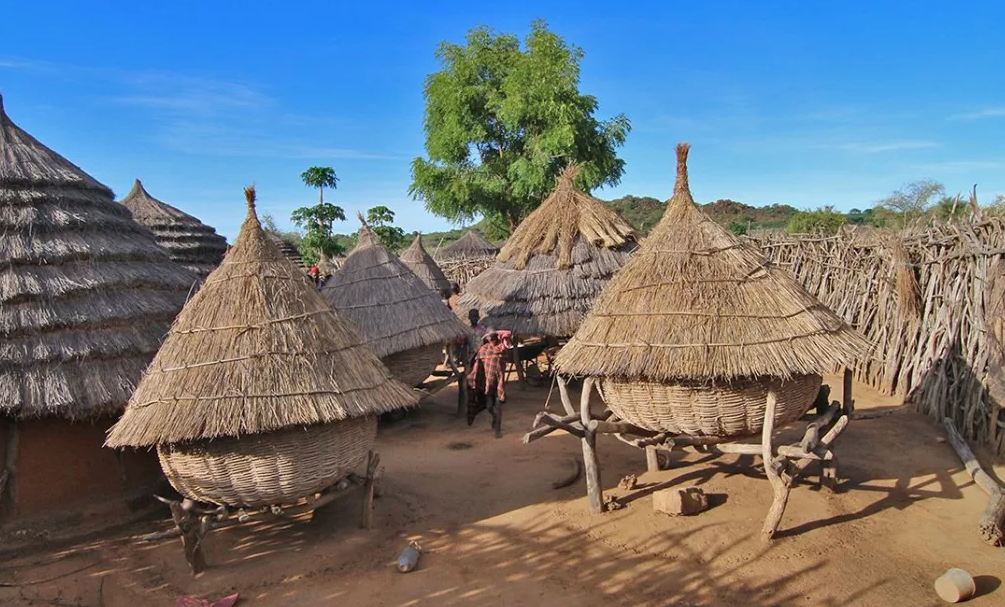
8 Days Adventure Tour to Eastern & Northern Uganda
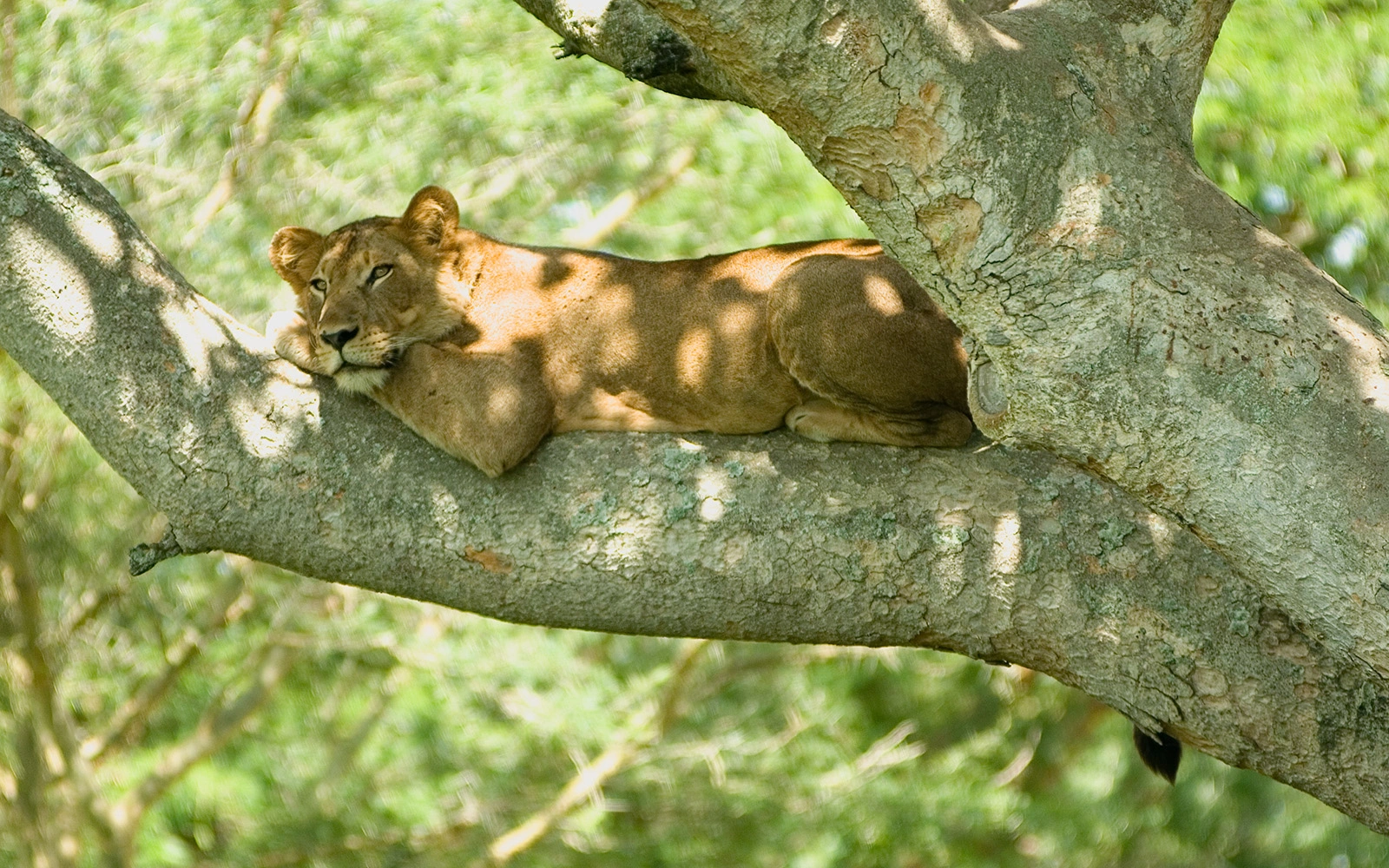
10 Days Uganda Wildlife Safari, gorillas, Chimps & Big Game

About COBATI
Cobati's focus.
Community Tourism & Women's Empowerment

See empowered people in Uganda fully participating in and benefiting from tourism in their localities.
Enhance the capacity of local people to harness and realise the tourism potential within their midst, leading to improved livelihoods.
Empower Uganda communities to develop and utilize community tourism as a tool for income generation.
History and Focus
COBATI is a non-profit tourism NGO established in 1998 to help rural Uganda communities in high tourism potential areas supplement household incomes through community tourism enterprises. The focus is mainly on empowering women through homestead tourism, handicraft production, and rural hospitality.

We identified a gap between mainstream tourism, rural villages near conservation and cultural sights, and community-based products and then developed a concept to use community tourism to generate income. In 2000, the concept received recognition from the World Bank as a priority area for poverty alleviation.
Since 2005, COBATI has promoted the benefits of community tourism to target communities through mentoring, on spot training, and outreach visits. Initially the COBATI concept was not supported, as tourism planners did not think of combining tourism with the traditions and cultures of indigenous peoples or consider rural communities as viable destinations.
Community Based Tourism Initiative started as the idea and vision of one person, Maria Baryamujura and has grown into a locally and internationally recognized tourism NGO. We train and empower communities to harness the economic potential of their natural and cultural resources. And, we innovate ways for communities to enhance and diversify their tourism services and products.
Reviews and Feedback About COBATI

Play video The visit to Bombo Village was awesome. We had a great time and Ismail was indeed a wonderful host. I have contacted him to arrange for us to provide assistance to the Bembe Hills Primary school and he has been helping me with that. I have asked two organisations to assist with this and they have contacted him directly. Also, the Trinidad & Tobago High Commission is aiming to assist. The main challenge was that we were vegetarian and the lunch was not LOL! It’s actually quite a small one, but Ismail felt a little bad about it, but it wasn’t his fault! Keep up the good work. Akosua from Trinidad & Tobago: November 2013
Play video During an eight-month trip around the world, we spent ten days in Uganda where we visited Bombo Village near Kampala and Mbarara in the southwestern part of the country. First we went to Bombo Village and had lunch at Mama Milly’s house. It was so much fun to be greeted by the singers and dancers when we drove up. Lori is into art and jewelry-making, so she really enjoyed meeting the women in the handcrafts group. It was also very interesting to learn about the Nubian culture. (See more on our travel blog, Bombo Village.) Then we spent a few days in Mbarara and met several families that participate in the COBATI program: Betty Kahima, the Katanywas, and Diana Kajugira. Our greeting at Betty Kahima’s home was overwhelming! We were greeted by the wonderful singers from the church group. Then we drank the traditional millet drink and Betty gave Lori two handmade necklaces: one with seed beads and the other with handmade beads from banana leaves. Lori mentioned that men might like banana leaf bracelets, and before we left, the ladies made a bracelet for Michael. We cherish these gifts very much. We thought it was really cool to see the Katanywa family’s traditional milk hut and pots. Michael liked the milk and yogurt from the Ankole long horned cow because it has a smoky flavor (the milk pots are cleaned by smoking them). Our next stop after Uganda was South Africa and Michael was thrilled to find milk pots for sale at a boutique. He bought one and talks about it often, and we know he will find a special spot for it when we get home. One of the most memorable experiences was learning how to make banana beer at Olive Kasande’s plantation (see a video on our travel blog, Banana Beer Making). Michael & Lori from the United States: April 2013
Play video When it comes to stay at Dick and Diana’s place it was great! I really appreciated this moment of peaceful relax I could have at their place – and wonderful breakfasts! To Dick’s surprise I was most enthusiastic about mangos and pineapples! It was the first time I saw how they grow… believe me, it’s really not obvious for people like me (or my friends who have never been to Africa – they were surprised too!!). If I were to improve something, then maybe I would like to try do the bead necklace myself with Diane’s help, not just watching the way she beautifully does it. Oh – when I was at their place there was a tremendous thunderstorm! It was amazing and I was so afraid. But it was nice to sit with everyone in the living room in the darkness by the light of mobile phones and listen to the noises of the rain and thunders. Really glad I had this opportunity – thank you. Suzanna from Poland: September 2012
COBATI Achievements
- COBATI won the National Geographic/Ashoka Geotourism Urban Adventure Prize in 2009. The award recognized the COBATI community tourism model which demonstrates how to integrate the “Power of Place” into the travel experience.
- COBATI was a nominee for the 2008 Commonwealth Business Council CBC African Business Awards in the Leader in Social Innovation category.
- In 2006, COBATI Founder Maria Baryamujura was elected to the Ashoka Fellowship, a global association of leading social entrepreneurs. She was selected in recognition of her vision, commitment, and innovative solutions to use tourism as a tool to empower rural people to improve their livelihood using traditional skills, the environment, and natural and cultural resources.
- COBATI was a finalist in the World Bank sponsored competition Development Marketplace 2000.

How we’re proud to support community tourism in Uganda

09 Jul How we’re proud to support community tourism in Uganda
For a developing country such as Uganda, it is important to ensure that tourism revenue stays within the local economy and creates a positive impact for different communities, wildlife and future sustainability.
Venture Uganda is proud to work with a number of community tourism initiatives which aim to achieve exactly these goals. Here are just a few examples:
Ugandan bark cloth
An ancient and traditional craft, bark cloth making is the practice of transforming fig tree bark into fabric. Of particular significance to the Baganda community, bark cloth is produced by skilled craftspeople using a technique that has been passed down the generations.
Visitors can watch as the bark is removed, before the tree is bandaged with banana leaves so the bark grows back. Meanwhile, the piece of bark is then boiled and beaten with a special mallet to turn it into a cloth.
Coffee farms
There are several coffee farms in Uganda, although each offers a slightly different experience.
For example, guests can visit a coffee farmers’ group just a couple of hours’ drive from Kampala. Here, they can learn about how coffee is grown before picking ripe coffee cherries in the gardens and joining in with processing, pounding and roasting. Finally, visitors can enjoy a cup of coffee, while sampling and buying other products such as pumpkin seed powder, honey or dried rosemary.
In recent years, Uganda has developed a reputation for producing high quality Arabica coffee thanks to its rich and fertile landscape. A visit to a coffee farm near Mount Elgon in eastern Uganda is an opportunity to learn all about this new wave of coffee production, as well as enjoy a processing and tasting experience.
Mango farms
Who doesn’t love mangoes? We love visiting a farm on the way to Murchison Falls National Park, where our guests can take part in a tour of gardens and learn about mango cultivation. Back at the farmhouse, explore the small processing unit where the mangoes are turned into juice and wine (tasting is obligatory!)
Women’s basket weavers group
For beautiful gifts, we’d recommend a visit to a women’s basket weavers group based in the shadow of the Rwenzori Mountains. Learn how natural dyes are extracted from plants before being used to produce a variety of colours of raffia, which are then woven into high quality baskets of all shapes and sizes. There is also a nearby beekeepers’ cooperative and a coffee factory which can be visited on the same day.
Fishing village and boat ride
To really get an understanding of some of the issues faced by fishing communities, a tour of a fishing village with a representative of the local authorities is a must.
We can also arrange for a local fisherman to meet guests on the banks of the River Nile or shores of Lake Albert, to enjoy a birding activity or simply to relax.
Alternatively, a trip to a local fishing boat makers’ yard is a chance to see how fishing boats are hand-crafted using wood (and some surprising materials such as woollen blankets).
Batwa Trail
Learn all about the Batwa – a community of people who lived in the forest at the foot of the Virunga Volcanoes who have now been unfortunately displaced as a result of modernisation. Today, many work as tour guides to teach visitors about their disappearing way of life and old customs.
There are many more activities that tourists can visit to gain an insight into the lives, culture and heritage of the many tribes of Uganda and experience local hospitality.
Kilombera weaving
Kilombera is a small weaving enterprise located on the banks of the River Nile between Jinja town and Bujagali, where people go for white water rafting, kakyaking, SUP etc. so its the perfect place to stop. They produce beautiful hand-woven pure cotton cloth and make all sorts of items from it including kikoyi (sarong/wrap), home wear, babywear and bags. It is fascinating to see how the looms are set up, and the colours and patterns selected and then watch the weaving process. This is a very talented group of people.
Other ideas
If you’d like to support community tourism in Uganda, we can arrange:
- A stay in a locally owned or community owned accommodation, including home stays
- Visits to private conservation projects set up by local people to protect natural resources and habitats
- Tours led by expert local site guides with in-depth knowledge of a certain area, along with additional local, historical and cultural knowledge
Privacy Overview

What is community tourism, in Uganda?
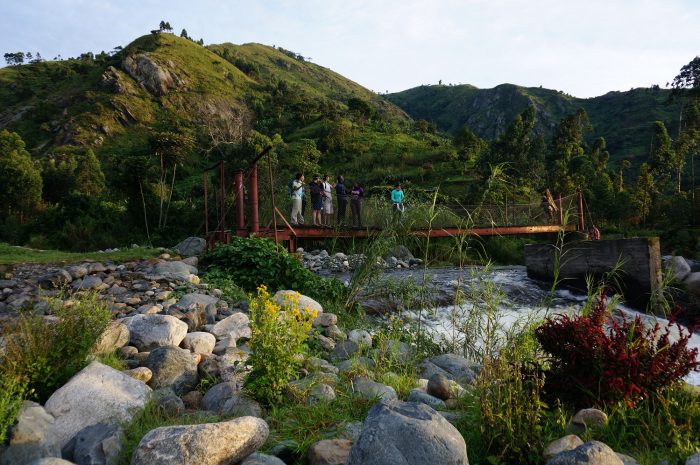
In Uganda, community tourism refers to tourism services and experiences that are part of the community daily life in the local setting, presented to the tourists by the community members themselves and the proceeding benefits of these activities go directly to the community. In community tourism, the community members are involved in the planning and managing the tourist experiences. Thus, they own a big stake of the proceeds and other resulting benefits. Community tourism products/ experiences in Uganda can be divided into four sections;
- Community accommodation: These include camping grounds, home stays, lodges and guest houses. The accommodation facilities are developed or prepared to provide accommodation services to the travelers who come from outside the community. they are mainly a replication of the hotel ideas that the community adapts from different impressions including change of knowledge with travelers and other tourism service providers of varied levels.
- Community tours and demonstrations: These include excursions, demonstrations/workshops and cultural performances that showcase the natural and cultural heritage of the local community. These tours dwell on the local cultural and social aspects of the area and attractions. the demonstrations include dance and drummer, presentations and workshops of making local cultural items, goods and products.
- Handicrafts and souvenirs: These are local arts and crafts sold in the shops, displays or exhibitions. they are mainly traditional crafts made by the locals using locally available materials.
- Food and beverages: These are the snacks, foods and drinks sold in restaurants, bars or traditional cuisine offered in the homes.
Though each one of the above can be run individually as a community tourism product, they tend to complement each other. For example, most people who come to buy either accommodation, tours or handicrafts will normally want to have foods or drinks. On the same case, the people who come to stay for a night may want to take a walk, or a demonstration/ dance as they pass time. In all cases, people like to take tangible experience and these are the souvenirs which are the local arts and crafts, pictures or the memories.
How community tourism differed from mainstream tourism.
- They are established by the community and on the community land normally owned by a group or an individual who is a resident member of the same community, share the same beliefs and values with the surrounding community neighboring the enterprise
- Community tourism is practiced only outside the protected areas on land or natural resources that the local people are allowed to use by law without restriction. These include the water resources, forests, landscapes, cultural sites or residential villages. on contract with the park, some sales points of community tourism may be established within gazetted areas of the park.
- The community tourism enterprises are mainly run by local manpower including managerial positions.
- Community tourism considers the needs of the local community at all operation levels. This is shown by codes of contact that guide visitors from not violating the local culture, nature and life ideologies of the local people or country.
- Community tourism gives back value out of the earned proceeds and benefits, to the surrounding community members and development initiatives.
Community tourism is now becoming popular in Uganda since it is a tourists’ good entry point to the local culture and social life. This makes community tourism a key factor to successful wildlife and other mainstream tourism experiences. Supporting community tourism is one of the best ways to support conservation during travel, since most of the income goes back to the local families hence preventing them from depleting natural and cultural resources through subsistence survival.
In Uganda, community tourism is regulated by Uganda community tourism association (UCOTA) Uganda community tourism association through interpretation of policy to the local communities and collaboration with other government institutions such as the ministry of tourism and UTB. UCOTA is a membership organisation that partners with all tourism stakeholders to build, regulate and support communities involved in community tourism as a livelihood. these partners include Uganda tourism board (UTB), Uganda Tourist Association (UTA), The uganda Association of travel Agents (TUGATA), Uganda Hotel Owners Association (UHOA), Uganda Safari Guides Association (USAGA), Association of Uganda Tour Operators (AUTO) and others. For more information about Community tourism in Uganda, you can contact us through this website or contact UCOTA through the following contact details; Phone: +256 772657700 Email: [email protected] Website: www.ucota.or.ug
Welcome to Uganda!!
Classified Tours
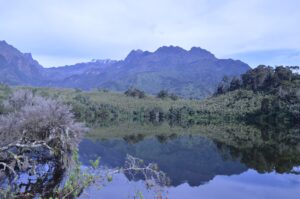
2-Days Mahoma trek is more affordable
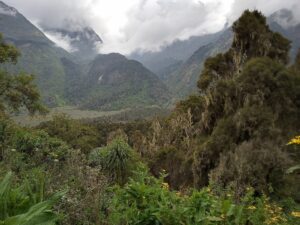
Rwenzori Climbing and Gorilla tracking (8 days)
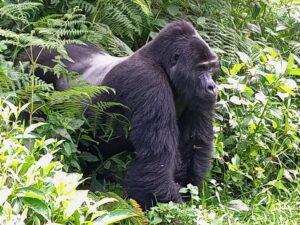
Uganda Wildlife, Mountains and Gorilla Safari (14 days)
Latest travel news, 1 new opportunity for tree lovers trekking the rwenzori mountains., best way to experience ruboni (2 days), why choose us.
- Perfectly integrating Uganda's nature and culture in your trip
- Penetrating the jungles with largest herds of wild animals
- Affordable and Tailored Holidays
- Special offers that you wont find any where else in Uganda
- Ability to pay safaris in installments
- Volunteer opportunities across Uganda
Contact information
- Phone: +256 (0)706581477 WhatsApp: +256 (0)752503445
- Email: [email protected]
- Website: : www.theugandatrips.com
- Address: Nyakalengijo Cell, Ibanda - Kyanya Town council, Kasese - Uganda
Our phones are on, seven days a week.
Be part of the community
©2024all rights reserved..
WhatsApp us
- Direct Contact:
- +256 776 423286
- [email protected]

Community-Based Tourism in Uganda

- community tours

Community-based tourism (CBT) refers to a variety of tourist-host interactive activities that generate economic and social benefits for the host communities. CBT enables rural communities to participate in tourism development to supplement their household incomes. The formation of Community-based Organizations among host communities facilitates this achievement. Community-based tourism in Uganda primarily relies on the establishment of such organizations. In particular, a Community-based organization is an organization that aims at making desired improvements to a community’s social health, well-being, and overall functioning. Community organization occurs in geographically, psychosocially, culturally, spiritually, and digitally bounded communities. It involves community work, community building/development, community mobilization, and community empowerment. They are also charged with the following roles;
- Cultural conservation
- Sustaining local culture for future generations
- Employment to locals
- Bridging gaps between tourism resource owners/managers and the local people
- Diversifying economic activity in a community
- Supporting the movement of good tourism
For those interested in community-based tourism in Uganda, Safari Vacations and Travel Services stands out as the ideal tour operator to contact. We specialize in crafting tailor-made packages and itineraries perfectly suited for individuals who actively seek to explore communities involved in conservation and tourism. Our expertise lies in creating bespoke packages and itineraries that cater specifically to individuals who are eager to explore communities actively participating in conservation and tourism development. In Uganda , there are several community-based organizations that you would like to visit on your journey in Africa. Below are some of them whose organization and benefits would be good to fix in the itinerary.
KIBALE ASSOCIATION FOR RURAL AND ENVIRONMENTAL DEVELOPMENT(KAFRED)
Bigodi Community-based Tourism
KAFRED is located on the outskirts of Kibale National Park and was found in Bigodi in 1992. Its purpose and objective is to protect the local environment while advancing health, education, and economic growth in the wider local community. John Tinka of Bigodi is a founder and the continuing Program Manager. The group’s emblem is the great blue turaco, a majestic bird found in the Bigodi Wetlands Sanctuary. The Organization’s emblem is a great blue turaco which inhabits the Bigodi wetland, conserved by the community. KAFRED was formed with the vision of seeing communities live in harmony with nature. The mission was and is to advocate for the management and sustainable use of natural resources in and around Bigodi wetlands for the development of the Rwenzori region.
Achievements of KAFRED
KAFRED has two main achievements and these are;
Poverty Reduction
KAFRED operates under the complete management of the community, with an elected committee representing the community chosen during the Annual General Meeting. Tourism activities, such as the Bigodi Wetland Sanctuary walk, actively redirect revenues into community projects that specifically enhance education, health, and sanitation. Moreover, the local community serves as the primary workforce, with exceptions made only in cases where specific skills are required. KAFRED allocates its net income to various community development projects, including those funded by donations from volunteers. By prioritizing local employment and utilizing locally sourced materials, KAFRED contributes to the overall development of the area. Furthermore, additional income-generating activities in the region, such as agriculture and employment opportunities in neighboring Kibale National Park, further enhance this holistic development.
Below is an outline of how KAFRED through tourism has changed the Bigodi community:
- Employment of 17 teachers, 8 guides, 3 cooks, 4 security guards and 3 cleaners.
- Teachers and guides receive training and capacity building through KAFRED.
- The Women’s Groups are provided with space to sell handicrafts and peanut butter at the Wetlands visitor center.
- Local people have adapted to eating the above-mentioned foodstuffs, leading to improved nutrition.
- KAFRED began construction and management of Bigodi Secondary School starting in 1993. The school now has some 350 children. Because of tourism revenue, parents pay about 50% less for fees compared to other private or community schools.
- KAFRED has funded a community safe water project. For instance, Community water kiosks have been set up to serve at least 300 people. This has reduced the cost of water prices from UGS 800 to UGS 200 per 20-liter can.
- Building a house for midwives so that they can stay at the local health unit and support mothers whenever they need maternity services. In the recent past, women had to hold it until office hours or the family would have to hire a private car to Fort Portal town, 40 km away on a bumpy road!
Biodiversity and Conservation
KAFRED’s main aim reads in part: “… and the conservation of natural resources, wetlands in particular”. Community development projects have been funded with income from tourism. Some of the ways through which KAFRED has improved Biodiversity and conservation are as follows;
- KAFRED guides visitors on swamp walks around and across the swamp, promoting adherence to designated trails. We actively encourage visitors to carry all their garbage back to the visitor’s center, where it is properly disposed of in bins. KAFRED does not provide catering services and this limits the levels of pollution.
- KAFRED has collaborated with environmental bodies like NEMA to conduct an Environmental Impact Assessment. For instance, about 40 participants, including members and representatives of homesteads neighboring the swamp, actively engaged in a participatory planning exercise to formulate bylaws for the management of the swamp. This process involved creating a list of dos and don’ts.
- The Bigodi Women’s Group, a member of UCOTA, engages in crafting and selling handmade products. Most of the materials and dyes used are natural and this was an environmental issue. KAFRED has through UCOTA organised training workshops in sustainable harvesting methods.
BUHOMA COMMUNITY DEVELOPMENT ASSOCIATION (BCDA)
The local community around Bwindi Impenetrable National Park in South Western Uganda initiated and manages the Buhoma Community Development Association (BCDA), a community-based business enterprise. Established in 1993, its purpose is to empower residents to earn a sustainable livelihood while promoting the conservation of the unique ecosystem. Situated at the entrance of the park, BCDA plays a vital role in fostering community development and environmental conservation. One of the main reasons that led to the creation of BCDA was to position the local communities around the National Park to earn a living through methods that would not destroy the biodiversity in their living environment. Simultaneously, its objectives included enhancing the socio-economic income of the communities in Mukono parish by elevating education standards, improving healthcare, empowering women, and promoting conservation. This was achieved through the establishment of a sustainable resource base within our communities.
Achievements/Benefits of the Buhoma Community Development Association
BCDA has registered several successes which lie in conservation, social, and economic categories and these include;
- The Association has worked hard to secure sustainable jobs for the community members and empowerment in skills development to work as guides among other aspects. There is a local tour company that trains guides from the Buhoma Community which has enabled the locals to benefit directly from tourism. This has helped in the mobilization of the community to gain tourism revenue from those who conduct their gorilla tours in Uganda.
- BCDA has managed to set up projects that are beneficial to the whole community. The organisation set up two lodges; Haven Lodge with; two (2) impressively designed double / twin cottages and one (1) family cottage all featuring en suite facilities. and Buhoma Community Rest Camp with six (6) en suite safari tents, three (3) self-contained cottages, two (2) non-self-contained twin bandas, and a six (6) bed dormitory along with a campsite. Additionally, these lodges offer affordable rooms and provide highly-rated services. Moreover, the revenue generated from these lodges supports communal projects such as the Buhoma Community High School, Buhoma Gravity Water Flow Scheme, Buhoma Cooperative Savings and Credit Society, as well as pineapple and vegetable growing projects.
Implications to tourists and local communities
This demonstrates how community-based tourism can thrive in Uganda and other regions grappling with the co-existence of wildlife and humans. In other words, it is an experience that one would cherish, considering that a visit to a particular National Park not only provides a fulfilling experience for the tourist but also contributes to the continuous efforts of local communities in resource conservation. Consequently, the quality of life for these communities keeps improving due to the positive impact of tourism.
Conclusively, Why not book a safari trip with a trusted and experienced tour operator to be part of this wonderful experience? Contact us today for the best safari packages that will enable you to experience the best of Community-based tourism in Uganda.
Related posts

Tour from Kigali to Burundi

Uganda Sustainable Safari s& Responsible Tourism

Journey to Bwindi Impenetrable Forest: Your Ultimate Guide

How to support Community-Based Tourism Organizations

Community tourism in Rwanda

3 Days Gorilla Safari Uganda
- Bwindi Impenetrable National Park
- Lake Mburo National Park
- Kibale Forest National Park
- Kidepo Valley National Park
- Mgahinga Gorilla National Park
- Mount Elgon National Park
- Murchison Falls National Park
- Queen Elizabeth National Park
- Rwenzori Mountains National Park
- Semuliki National Park
- Budongo Forest
- Busingiro Ecotourism Site
- Mabira Forest
- Mpanga Forest
- Rabongo & Kaniyo Pabidi Forests
- Busitema Forest Reserve
- Bugoma Forest Reserve
- Kasyoha-Kitomi Forest Reserve
- Maramagambo Forest
- Mount Otzi Forest Reserve
- Zika Forest
- Ajai Wildlife Reserve
- Bokora Corridor Wildlife Reserve
- Bugungu Wildlife Reserve
- Kabwoya Wildlife Reserve
- Karuma Wildlife Reserve
- Matheniko Wildlife Reserve
- Pian Upe Wildlife Reserve
- African (Cape) Buffalo
- African Elephant
- Banded Mongoose
- Black and White Colobus
- Common Hippopotamus
- Jackson’s Hartebeest
- Chimpanzee Tracking
- Family Safaris
- Launch Trips
- Mountain Climbing
- UNESCO Heritage Sites
- About Uganda
- Respect Wildlife
- Road Trip Planning
- Uganda Safari Packing List
- What to Wear
- When to Visit
Community Tourism
What is community tourism.
Community Tourism includes tours, workshops, performances, dining, homestays and accommodation, all of which are provided by the local community.
How does this benefit the community?
These organizations are owned and managed by the local community, creating jobs in regions with few opportunities. They provide employment for people with a variety of skills, including drivers, cooks, guides, dancers, managers and service staff.
A percentage of the income is often put into a community fund, which may be spent on health, education or conservation initiatives such as building a classroom or orphanage, reforesting areas of land or HIV awareness campaigns.
How does this benefit conservation?
In areas with few employment opportunities, tourism can provide an important source of income which discourages people from carrying out non-sustainable activities such as poaching, fishing, logging or gathering firewood from protected forests. Receiving tourists also provides and incentive for communities to value their natural environment and preserve it for future visitors and residents.
How does this benefit tourists?
Visitors to community tourism projects experience a unique and authentic side of Ugandan life, as they eat traditional food, meet the villagers, play with the kids and are guided by experts who have lived here their whole lives. A community tour or homestay is sure to provide one of the most meaningful memories of your Ugandan holiday!

- 10 Days Karamojong Cultural Trail
- 10 Days Primates & Community Tour In Uganda
- 8 Days Mabira Eco Tourism Safari
- 12 Days Uganda Community & Volunteers Safari
- 26 Days Uganda Culture & Wildlife Safari
- 8 Days Uganda Culture & Gorilla Safari
- 15 Days Eastern Uganda Adventure & Culture Safari
- BUNYORO KINGDOM & TOORO KINGDOM
- IGONGO CULTURAL MUSEUM & KASUBI TOMBS
- NDERE TROUPE CENTRE & NYERO ROCK PAINTINGS
- Construction Management
- Facility Maintenance
- Mining Infrastructure
- Pavement Preservation
- Site Location
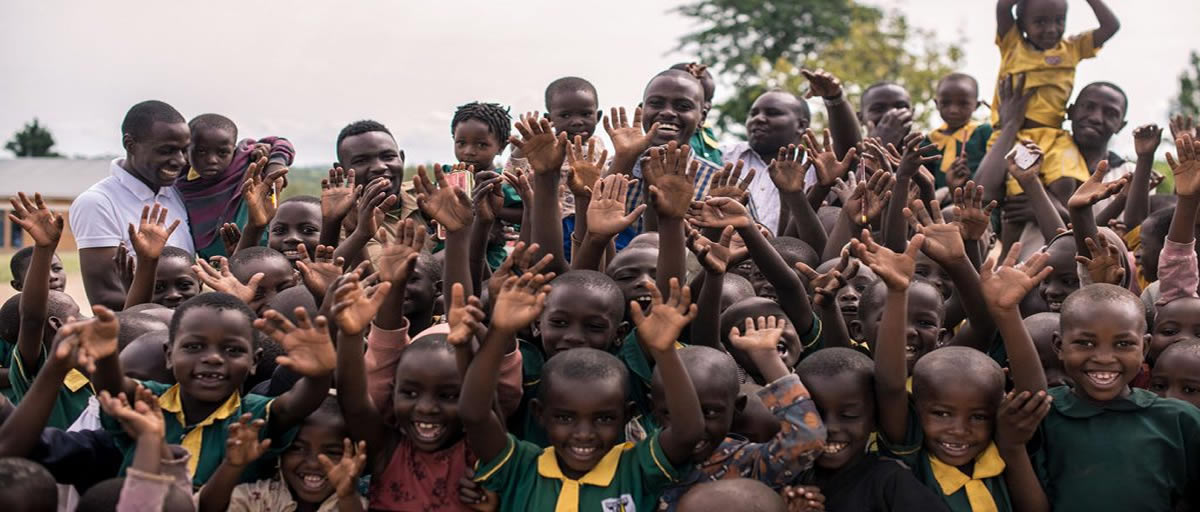
Welcome to Community Uganda Travel
Responsible travel in uganda.
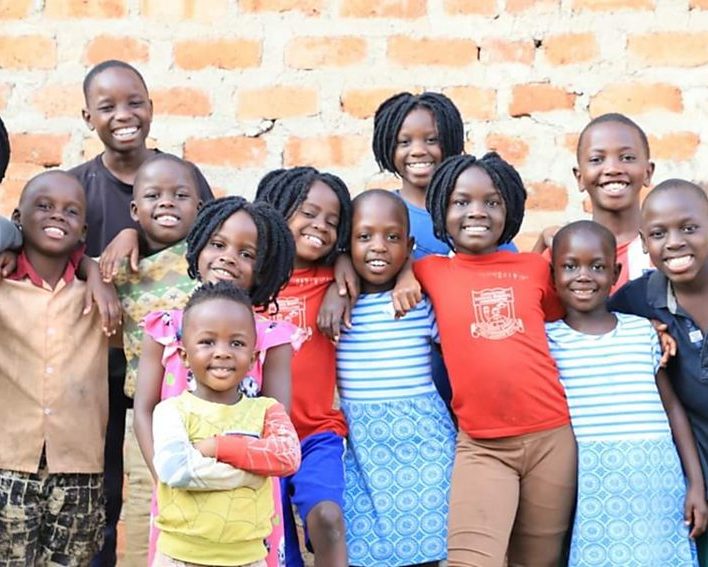
masaka kids
Clean Water & Food
Medical equipment, our community initiatives.
Responsible community travel in Uganda, our community initiatives are directed primarily towards the responsibility of giving Ugandan communities a hand-up through travel. We help communities in rural Uganda establish brick-wall classrooms for their schools thus creating a quality environment that helps enhance better quality education provided to the students. The Ugandan population is presently estimated at 31 million people. Of this, over 60% are below the age of 18 and school-going. Universal Primary Education(UPE) a government program that allows free education for all elementary school going children has seen an immense response that has led to overcrowding of schools and eminent shortage of infrastructure and scholastic materials, some children hold their classes under Mango trees- a good gesture but not very weather-friendly.

COBATI & BIGODI Initiatives
Volunteerism uganda, poverty reduction, our best community safaris.
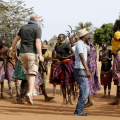
12 Days Uganda Volunteer Safari

9 Days Karamojong Cultural Trail
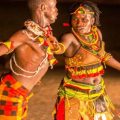
8 Days Uganda Culture & Gorilla Safari

5 Days Educational Community Safari
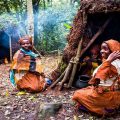
7 Days Batwa Cultural Trail & Gorilla Safari
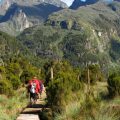
9 Days Culture & Hiking Safari
Eco tourism in uganda.
Responsible community travel in Uganda also carries out Ecotourism which is a new phenomenon in the world as it in Uganda dates back to the 1990s. It involves such activities as Nature guided Walks, Bird Watching, Village/community Walks, forest walks, butterfly watching, sport fishing, mountaineering/hill-climbing, Gorilla tracking, Chimp tracking,
game viewing, boat cruises, canoeing, caving, scenery viewing/nature photography, primate watching/walks, and any other aspects that relate to Natural, Cultural and Rural tourism. The ecotourism destinations in Uganda include all the ten national parks, wildlife and game reserves, forest reserves, events/cultural centers, community wetlands, Theme parks, resorts, and important bird areas.
Tourism Destinations Uganda
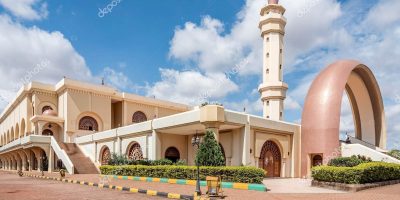
Gaddafi Mosque
This mosque was built by the former president of Libya Colonel Muammar Gaddafi as a gift to the Muslims in Uganda. The mosque was opened in 2007 and later changed the title of the mosque from Gaddafi Mosque to Uganda National Mosque in 2013 after the death of Col. Muammar Gaddafi.
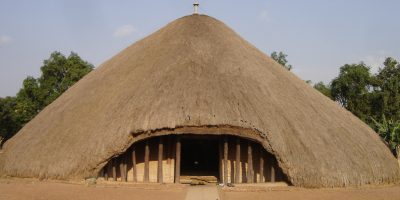
Kasubi Tombs
Kasubi tombs hold a great fundamental to the Buganda Kingdom until today the site remains a spiritual and political role to the Ganda people. The tombs hold great meaning in the Buganda Kingdom because it holds four of the great past Kings of this Kingdom
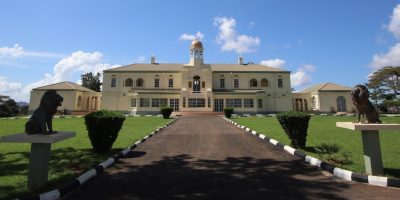
Kabaka Palace
This beautifully built palace for the king of Buganda was built in the 1900s as a gift for the King of Buganda by the British. The palace has all the history of Buganda and is part museum for the history of the kingdom. This palace occupies a whole hill in the middle of the capital city,
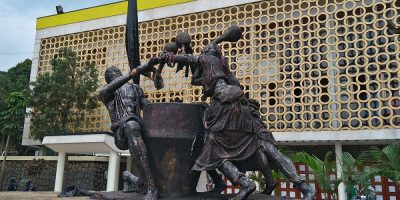
Uganda Museum
The nyero rock painting was dated back to 1250CE and was first documented in 1913 and was largely described by researchers to be geometric. This kind of art iS attributed to Twa hunter-gatherers who are of the late Stone Age gatherers culture. the museum has all cultures of the country

Uganda Catholic Church
The catholic martyrs’ shrine also known as the catholic basilica was built in 1973 after 32 young Catholics and Anglicans were burnt alive after they refused to denounce their religions in the court of King Mwanga II in 1886. In 1973 the basilica was built in remembrance of the brave 32 souls.
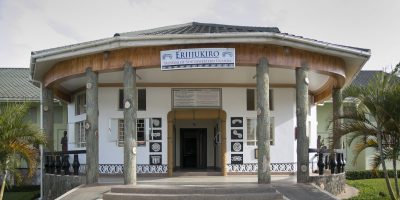
Igongo Culture Center
The Igongo cultural center is located in the west of Uganda and it is the cultural centrality of the Ankole Kingdom. This cultural center features a museum of the Ankole culture. The cultural food, the eclipse monument also known as The Biharwe monument in the local language and cultural shops
Help Save a Life
Send message
Our Partners

Active African Vacations
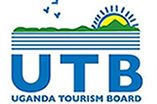
Uganda Tourism Board

Tourism Uganda

Tourism Operators in Uganda

Uganda Wildlife Authority

Community Uganda Travel

Top 5 Priority Areas For Your Uganda Business In 2022
10 cold signs that your business probably sucks, private company set up to boost quality of seed in africa, centenary bank unveils online drive to empower ugandans online, nsenene: grass hoppers that are a local delicacy in uganda, roast duck breast, stewed chicken, recipe for chicken biryani, road tripping uganda: best 5 places to visit, is walking the perfect exercise.
Community Tourism
Community Tourism is taking root in Uganda’s overall economic strategies to revamp tourism in the country. Community Tourism aims at involving the local people in the planning, decision-making and implementation of tourism development activities. This form of tourism assures that the benefits stay as much as possible in the local community.
About UCOTA
The Uganda Community Tourism Association (UCOTA) was established in July 1998, to empower local communities in sustainable development through small-scale tourism and handcraft enterprises, also known as Community Tourism. Community Tourism aims at involving the local people in the planning, decision-making and implementation of tourism development activities. This form of tourism assures that the benefits stay as much as possible in the local community.
Welcome to our complete News Portal about living, lifestyle, fashion and wellness. Take your time and immerse yourself in this amazing experience!
━ follow us
━ subscribe.
© tagDiv - All rights reserved. Made with ❤ Newspaper Theme

About Uganda Community Tourism Association (UCOTA)
Uganda Community Tourism Association (UCOTA) is the official umbrella body that brings together and advocates for the interests of community tourism groups in Uganda to ensure that the local tourist host communities benefit from tourism.
Since its inception, UCOTA’s functions and scope of operations have grown tremendously across the country. To date, the association comprises over 70 member groups country wide, representing 2,121 individuals of whom 63% are women. The groups operate small tourism enterprises ranging from Traditional/ basic accommodation, interpretive guiding services and restaurants to craft shops, music dance and drama performances.
The impact of the community tourism group enterprises to the livelihoods of the locals is already manifesting through a number of community projects supported by the groups by way of responsible tourism such as construction of clinics, schools, provision of safe water and literacy programs. Read more here >>
- Sustainable Tourism
- Pearls Of Uganda
- Mission and Objectives
- UCOTA Updates
- Membership guidelines & benefits
- Membership FAQs
- Membership Application Form
- UCOTA Runs Two Test Tours to Prepare Communities for Pearls of Uganda
- Trip Advisor
- Communities
- Accommodation
- Tour Operators
- Travel Resources
- Getting Here
- Getting Around
- Frequently Asked Questions
- Travelers Give Back
- Useful Phrases
- Conservation Organizations
- Authentic Culture
- Birding in Uganda
- Festivals & Events
- Natural Attractions
- Parks & Protected Areas
- Map Pearls of Uganda
- Murchison Falls
- Queen Elizabeth
- Rwenzori Mountains
- Bwindi Impenetrable
- Mgahinga Gorilla
- Cultural Hot Spots
- Cultural Performances
- Village Walks
- Nature Walks & Birding
- Community Accommodation
- Hands On Experiences
Sponsors and partners

© Pearls of Uganda 2015 - 2024
Uganda Breaks Away from the Safari Narrative With New Tourism Marketing
Lebawit Lily Girma , Skift
February 3rd, 2022 at 1:30 PM EST
It’s about time Africans were portrayed as central protagonists in the exploration of their own backyards. But Uganda’s new campaign also shows how African destinations can stand out more sustainably — pushing for local and regional tourism short-term, and preparing for more adventure and community-based tourism down the road.
Lebawit Lily Girma
For years, selling Uganda as a destination meant leaning on the region’s most predictable features — the iconic mountain gorilla and the Big Five animals. The East African nation’s diverse communities, modern cities, and remote community tourism experiences remained eclipsed to all but the intrepid explorer.
That narrative has now shifted. In a visible departure from the status quo, Uganda Tourism Board’s new marketing campaign showcases a country with features few outside visitors might expect, and serves as a sign of what’s to come out of African destinations in a post-pandemic competitive tourism industry.
Viewers might glimpse a chimpanzee, a giraffe or a cheetah on the chase, but these make up a tiny part of the footage, otherwise dominated by scenes of Ugandans enjoying a range of outdoor adventures, cultural and urban activities in their own country.
The new message is to not just visit Uganda’s sights, but to stay longer and explore its diverse corners beyond the gorillas and the Big 5 .
There’s a group river rafting, a lone female hiker on a gorilla forest hike, friends sharing a plate of matooke or mashed green bananas, and nightlife scenes in Kampala that contrast against tribe visits and Millennials partying by a riverfront infinity pool at a luxury lodge. As the clip wraps up, two women are in awe while on a game drive, while a road tripping couple pull over and hug over sunset.
All the depictions are of locals enjoying their modern, multi-faceted African destination while inviting outside visitors to “come see what is uniquely ours.”
The campaign, released less than a week ago, was launched alongside a rebranding of the destination to “ Explore Uganda , The Pearl of Africa.”
“That tourism brand is the result of a very intensive study which took place for a period of time,” said Tom Butime, Uganda’s Minister of Tourism, Wildlife and Antiquities , on a recent local news broadcast, adding that the study revealed tourists stayed longer in Kenya, Tanzania, and Rwanda than they did in Uganda.
Past branding didn’t stand out because of former poorly executed campaigns, and a lack of unity behind the meaning of “Pearl of Africa,” said Lilly Ajarova, CEO of Uganda Tourism Board .
“We also collaborated with some of the market researchers in North America or in Europe, and we know that it is not just wildlife that people are interested in right now,” said Ajarova. “So to be able to position ourselves as a competitive destination, it was important that we highlight the other attractions that we have as well.”
Uganda tourism businesses and veterans in the industry who spoke to Skift shared optimism and positive feedback on the new narrative and branding efforts.
For Theo Vos, founder of Kara-Tunga Arts & Tours — a social enterprise tour company in Uganda’s northern Karamoja region, a former conflict zone transformed through tourism, the message shift is indeed packed with meaning.
“The new video finally represents us, the people of Uganda, the potential of outdoor adventure and in addition the diversity in nature and its biodiversity,” said Vos.
Ugandan-born safari tourism veteran Praveen Moman welcomed the departure from the obvious marketing of the past.
“It’s great that the government is doing the campaign and hopefully, it helps build the product, build awareness, build the messaging,” said Moman, co-founder of Volcanoes Safaris .
There’s also power behind the voice leading the narrative, said James Haigh, head of sales and marketing at Lemala Camps & Lodges , whose Wildwaters Lodge riverfront infinity pool is featured in the campaign video.
“It’s a tourism board initiative, but it is a Ugandan talking to other Ugandans overtly, talking about ‘our country,” said Haigh. “I think it’s a really bold statement to change that and I love it.”
The three-year campaign roll out will prioritize local and regional African markets this year, before going big in international markets in2023.
An Initial Resistance to Change
The campaign faced initial pushback from Uganda Tourism Association (UTA), a trade association representing the private sector, claiming it wasn’t consulted on the new branding. Skift reached out to UTA president Herbert Byaruhanga but did not hear back.
Uganda Tourism Board’s Arajova told Skift that her team did consult the major stakeholders in the private sector, but that it wasn’t possible to incorporate their individual demands.
“We tried, but there are people who are just too passionate,” Ajarova said. Some had wanted the gorilla to be in the logo and others were saying they wanted the national flag, Ajarova added, noting that the tourism board’s priority was to look at the interest of the country in having an adaptable brand that speaks to future tourism trends.
But Uganda’s tourism industry at large is now embracing the change.
“We have gone around this now; as recently as yesterday we had a full meeting with them,” Ajarova added. “We are now doing training to get them to understand how to use the brand, co-branding the destination brand with their individual tour companies or hotels and so on.”
Africa’s Tourism Future Is Also Regional
When Covid hit, Uganda’s tourism industry had been growing by at least 20 percent annually for a decade, reaching just over 1.5 million visitors in 2019 and $1.6 billion tourism earnings. Of course that all changed in 2020, when the pandemic set the country back to 2005 with just a third of those visits and a 72.7 percent decline in tourism revenue , according to the Uganda Ministry of Tourism, Wildlife and Antiquities.
“In 2021, we had just over 500,000; we are hoping that we can be able to double last year’s number this this year,” said Uganda Tourism Board’s Ajarova.
Vaccines are on the way and so far the country aims to innoculate the majority of its adult population by the end of the year, Ajarova said.
Meanwhile, the U.S. State Department’s “Reconsider Travel” advisory on Uganda remains in place since the bombings in Kampala in November 2021. But Ajarova said the warning was nothing new.
“Again, it’s the way we are basically viewed, you know, countries on the continent of Africa,” Ajarova said. “But in reality, you know, it is not what is on the grounds. So, we basically have left the responsibility to our diplomatic missions to deal with that.”
The initial local and regional tourism draw has provided a buffer for Uganda’s tourism businesses as more locals and Africans have increasingly taken to exploring their backyards.
“We’ve been luckier than most,” said Volcanoes Safaris’ Moman. “First we started having a trickle of tourists from the region and then international tourists.”
The up and down flow of visitors the past 18 months has helped sustain the lodge, Moman added, but it’s also allowed it to operate and to some extent continue with its community and conservation work.”
Lemala Camps’ Haigh said that its Uganda property has seen a combination of visitors and record-breaking revenue.
“We’ve made more money in January this year than any year since the property’s been opened,” said Wildwaters Lodge’s Haigh. “And that’s been funded out of a mixture of local and regional, and international tourism.”
Adventure as a Community Tourism Game Changer
Vos’ Kara-Tunga Tours recently partnered with a group of six Ugandan and Dutch companies to form Adventure Tourism Uganda and design new cycling trails in national parks, including cross-border adventure and cultural routes linking Northeast Uganda to Kenya, South Sudan and Ethiopia.
Guides are also being trained to meet the future demand from outdoor travelers and tap into opportunities. The project has the backing of the Uganda Tourism Board and Uganda Wildlife Authority.
Vos said the shift to support community-based tourism in Uganda and spread the economic benefits of tourism to communities had started just before the pandemic.
“It got amplified by the effects of the pandemic and the current demand of tourists for immersive experiences with direct positive impact on the host communities,” said Vos.
The push for adventure and rural tourism beyond wildlife spotting is particularly promising for Uganda’s remote areas where climate change is threatening the pastoral way of life, and tourism can help diversify community income and reduce harm to natural resources.
“For a country like Uganda that’s one of the world’s youngest countries, fast growing population, rapid loss of wilderness, tourism is a changemaker,” said Vos.
Uganda Tourism Board’s Ajarova confirmed the push for involving communities in tourism. “As we pursue the development of different kinds of adventure, communities are going to be massively involved in the new product developments from culture to the adventure activities.”
It’s all part of Uganda tourism’s goal to target slower and immersive exploration and attract the rising number of travelers — domestic, regional and international — who are in search of meaningful experiences.
“I love the challenge of the word ‘explore’ because it is literally challenging people to take a deeper experience of a destination rather than the superficial one,” said Lemala Camps’ Haigh. “That’s what I think that’s what our future is all going to be about.”
The Daily Newsletter
Our daily coverage of the global travel industry. Written by editors and analysts from across Skift’s brands.
Have a confidential tip for Skift? Get in touch
Tags: africa , coronavirus recovery , tourism campaigns , tourism marketing , uganda
Photo credit: Kara-Tunga Tours' community experience with the Karamojong people in Uganda Kara-Tunga Arts & Tours / Kara-Tunga Arts & Tours

- Travelers Link Africa
- Cheap Air Tickets From Entebbe, Uganda
- Privacy Policy
- Combined Experiences
- Birding Expeditions
- Cultural Immersion
- East Africa Adventures
- Primate Safaris
- Gorilla Trekking In Uganda
- Active Travel Adventures
- Travel Information
- Travel News
- Community Based Tours in Uganda
- Travelers Link Africa Blog

Rwanda Gorilla Trekking Experience

How Much Does a Safari Cost in Uganda?
- Uncategorized
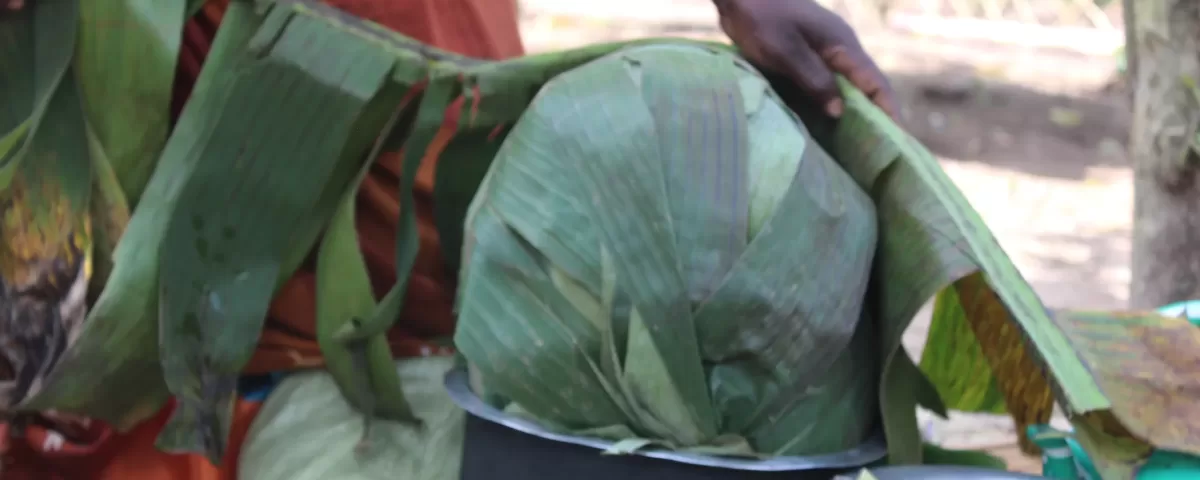
Culinary Experience in Uganda
Community-Based Tours in Uganda
Embark on a Cultural Immersion in Uganda with Travelers Link Africa, where the focus is on extraordinary people and rich cultural heritage. Our community-based tours provide a unique and immersive way to explore Uganda’s culture, traditions, and natural beauty while directly contributing to local communities.
At Travelers Link Africa, we guide you to authentic, off-the-beaten-track paradises where you can interact with local communities, stay in sustainable homestays, and delve into their livelihoods and environments.
Gain a deeper understanding of various communities, learning about their way of life, cultures, customs, crafts, and local cuisines. These experiences offer new perspectives on life while promoting conservation and sustainability.
Travelers Link Africa advocates for responsible tourism, encouraging travelers to participate in authentic, immersive experiences that contribute to transforming local communities.
Join us in transforming lives through tour experiences that preserve and promote local cultural heritage and traditional practices. Together, we can foster sustainable and responsible tourism practices, enhancing the overall well-being and quality of life for local communities.
Our community-based tours in Uganda are organized in collaboration with local community members to provide sustainable economic opportunities and preserve cultural heritage.
What communities can be visited on community-based tours in Uganda?
In Uganda, several communities welcome visitors interested in community-based tourism experiences. These communities offer opportunities for cultural immersion, interactions with residents, and participation in traditional activities. Here are some examples of communities that can be visited on community-based tours in Uganda:
Batwa Communities:
The Batwa people are indigenous forest-dwelling hunter-gatherers who traditionally inhabited the forests of southwestern Uganda. Visitors can learn about Batwa culture, traditions, and way of life by visiting Batwa communities, participating in cultural activities, and exploring the forests with Batwa guides.
Rural Villages:
Many rural villages offer community-based tourism experiences, allowing visitors to experience daily life in rural communities, interact with residents, and learn about traditional practices such as farming, cooking, and crafts.
Cultural Centers:
Cultural centers provide opportunities for visitors to learn about various ethnic groups and their cultural heritage. These centers often offer guided tours, cultural performances, craft demonstrations, and workshops on traditional arts and crafts.
Fishing Communities:
Along the shores of Lake Victoria and other water bodies, visitors can visit fishing communities and learn about traditional fishing methods, boat-building techniques, and the importance of fishing in local livelihoods.
Craft Villages:
Uganda is known for its rich artistic heritage, and many communities specialize in traditional crafts such as weaving, pottery, basketry, and beadwork. Visitors can visit craft villages to observe artisans at work, purchase handmade crafts, and even participate in craft-making workshops.
Coffee and Tea Plantations:
Uganda is a major producer of coffee and tea, and visitors can learn about the process of coffee and tea production by visiting plantations and engaging with local farmers. Some communities offer agro-tourism experiences that include coffee or tea farm tours, tastings, and farm-to-table meals.
Conservation Communities:
Most communities close to national parks and wildlife reserves are actively involved in conservation efforts and sustainable tourism initiatives. Visitors can support these communities by participating in eco-tours, nature walks, birdwatching excursions, and wildlife-viewing activities.
What are some examples of community-based tourism projects or initiatives in Uganda?
Cultural immersion experiences:.
- Immerse yourself in the authentic experience of the traditional villages, gaining firsthand insights into the way of life of the local communities.
- Participate in a variety of cultural activities, including storytelling, dance, music, and traditional ceremonies, showcasing the rich cultural heritage of Uganda.
- Expand your knowledge by learning about traditional crafts, cooking techniques, and agricultural practices directly from community members.
- Celebrate the vibrancy of local culture by attending festivals that showcase traditional music, dance, and rituals. These events are a testament to community pride and cultural heritage.
- Experience genuine Ugandan hospitality by staying with local families.
- Participate in family activities, prepare and share meals, and learn about local traditions and customs, providing direct economic support to hosting families.
Creative Craft and Artisan Experiences:
- Discover communities renowned for their traditional craftsmanship, including weaving, basket making, pottery works, cravings, and beadwork.
- Engage in hands-on experiences led by local artisans through immersive workshops.
- Acquire skills in traditional crafts like bead making, weaving, pottery, cravings, or drummaking, gaining a deeper appreciation for the cultural heritage of these communities.
- Contribute to the sustainability of local artisans by directly supporting them through the purchase of handmade crafts. This enhances the livelihoods of the local communities.
Agrotourism Experiences:
- Engage in Farm Visits that include exploring local farms to learn about sustainable agricultural practices such as planting, harvesting, or traditional food preparation.
- Immerse yourself in the world of tea, coffee, and vanilla plantations, understanding the intricate stages of processing these crops.
- Wander through the Local Markets to look out for the different farming products and trading activities taking place.
Community Conservation and Development Initiatives:
- Engage with community-driven initiatives focused on the conservation and development of natural resources. Contribute to the protection of wildlife and ecosystems by visiting and supporting community-led conservation projects.
- Explore the natural beauty of Uganda through guided nature walks in community-managed forests or nature reserves. This often includes bird watching and learning about local flora and fauna.
- Take an active role in Community Conservation Initiatives, gaining firsthand insights into conservation efforts and actively supporting sustainable practices for the benefit of wildlife and the environment.
- Gain a deeper understanding of Uganda’s education system by visiting local schools and educational projects. Contribute to community-based education initiatives, including community learning centers, health centers, community platforms, and arts and media projects.
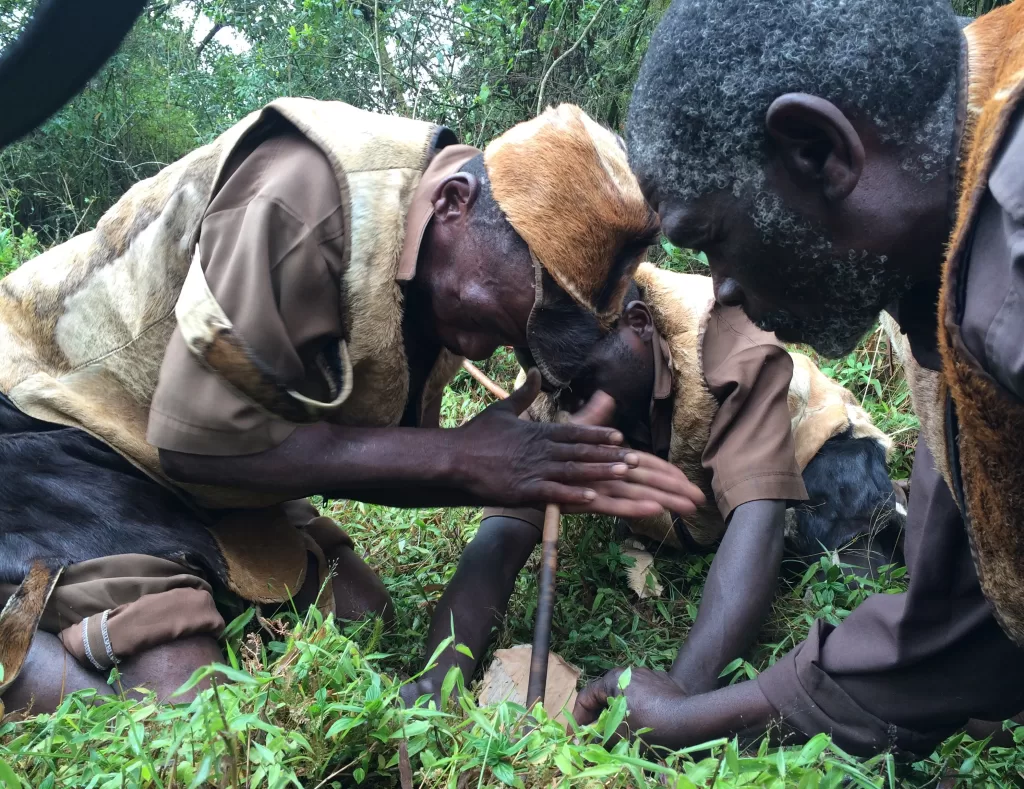
Batwa Experience
Culinary Experiences:
- Participate in culinary adventures by enrolling in cooking classes, where you can master traditional Ugandan recipes and the preparation of key local dishes.
- Indulge in delightful Food Tasting experiences, savoring traditional meals thoughtfully crafted by the local community. These dishes showcase the richness of Ugandan cuisine, often made with locally sourced ingredients from community farms.
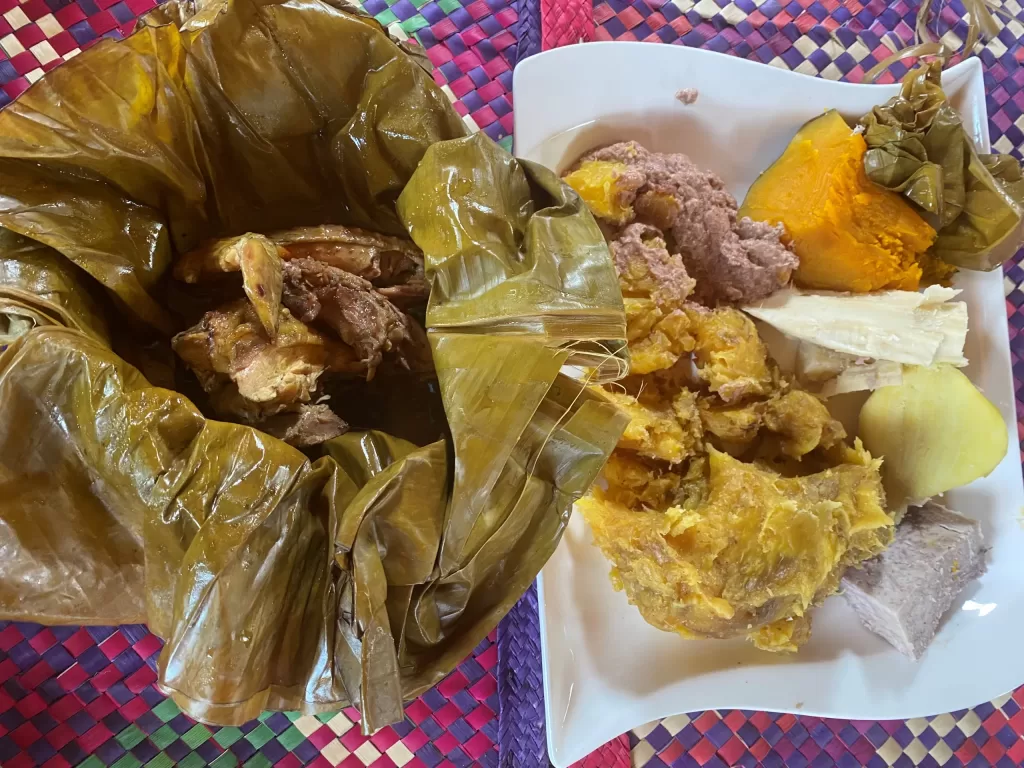
What types of accommodations are available for community-based tourism in Uganda?
Homestays : Homestays offer basic amenities and meals prepared by the host family. Visitors are provided with an immersive cultural experience and an opportunity to learn about daily life, traditions, and customs firsthand.
Guesthouses : These guesthouses offer comfortable accommodations with basic facilities such as bedrooms, bathrooms, and common areas and are managed by residents or community organizations.
Eco-Lodges : These are eco-friendly lodges that are designed to minimize environmental impact and promote sustainable practices. These lodges often blend into the natural surroundings and offer comfortable and environmentally conscious lodging options.
Campsites : For travelers seeking a more rustic experience, community-run campsites are available in some areas of Uganda. They offer tented accommodation or basic facilities for visitors to pitch their tents.
Community-Owned Lodges : In some cases, communities have established their lodges or accommodations as part of community-based tourism initiatives. These lodges are owned and operated by the local community, with profits reinvested into community development projects.
Cultural Centers : These centers in Uganda offer accommodation options for visitors interested in learning about traditional customs, arts, and crafts. These centers may provide cultural performances, workshops, and guided tours in addition to lodging facilities.
Farmstays : For a unique agricultural experience, visitors can opt for farm stays in rural communities. Farmstays allow guests to participate in farming activities, interact with local farmers, and learn about sustainable agriculture practices.
Book our cultural experience in Uganda and contact us at [email protected] for more information. We look forward to hosting you on a community-based tour experience.
Related posts
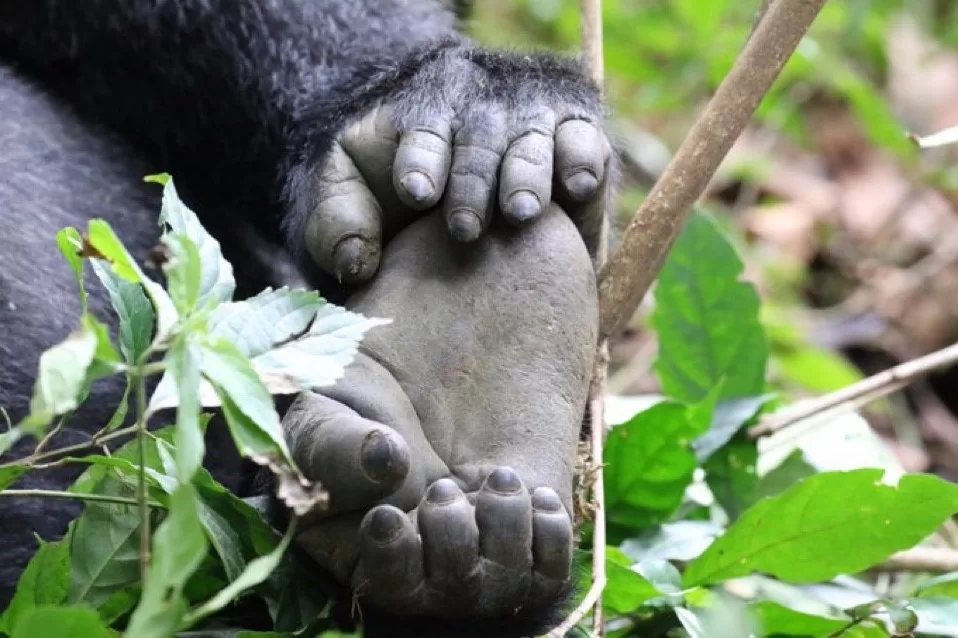
7 Day Uganda Primate Tour
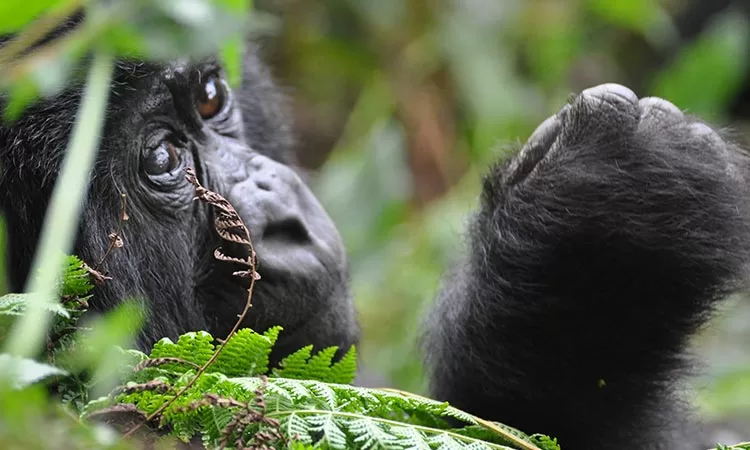
rwanda gorilla trekking experience
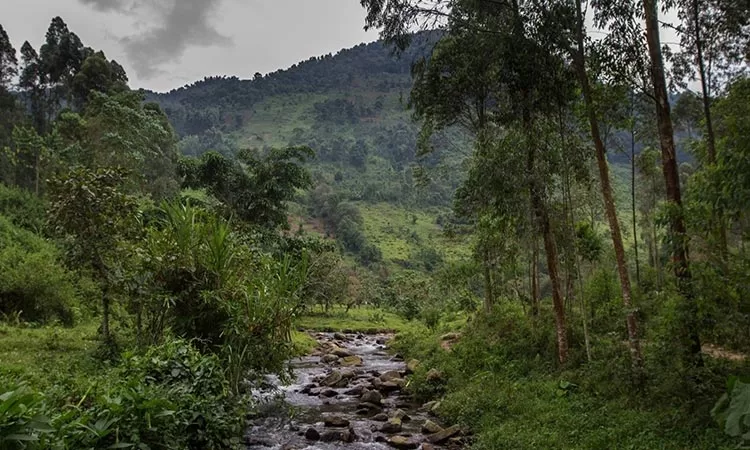
The best walking trails in Bwindi National Park

- The Star ePaper
- Subscriptions
- Manage Profile
- Change Password
- Manage Logins
- Manage Subscription
- Transaction History
- Manage Billing Info
- Manage For You
- Manage Bookmarks
- Package & Pricing
Uganda aims to greatly increase annual tourism revenue: report
Wednesday, 27 Mar 2024
KAMPALA, March 26 (Xinhua) -- Uganda's tourism authorities have said the country expects to increase annual tourism revenue to about 1.9 billion U.S. dollars and increase inbound tourism revenue per visitor from 1,052 dollars to 1,500 dollars.
This was revealed by Ugandan Minister of Tourism, Wildlife and Antiquities Tom Butime, who launched the "Dissemination of Tourism Industry Performance 2023" report here on Tuesday.
The minister said Uganda's tourism revenue for the year ending 2023 increased to more than 1 billion U.S. dollars from about 687,200 million dollars registered in the year ending 2022, which he attributed to massive tourism promotion by the ministry and other players.
The report showed that international tourism arrivals reached about 1.3 million in 2023, up 56.5 percent from 2022. Arrivals from Africa continue to dominate Uganda's inbound tourism with a share of 89.2 percent.
Tourism is one of Uganda's major foreign exchange earners, contributing approximately 5 percent to the country's gross domestic product, according to data from the Ministry of Finance, Planning and Economic Development.
Found a mistake in this article?
Report it to us.
Thank you for your report!
Osstem Implants Makes Strides In The Dental Implant Industry
Next in world.

Trending in News
Air pollutant index, highest api readings, select state and location to view the latest api reading.
- Select Location
Source: Department of Environment, Malaysia
Others Also Read
Best viewed on Chrome browsers.

We would love to keep you posted on the latest promotion. Kindly fill the form below
Thank you for downloading.
We hope you enjoy this feature!

Kawowo Sports
East Africa's hub for Sports content
Kenya Tourism Board taps into flourishing Uganda’s Motorsport for regional tourism growth
Enjoy with others:
- Click to share on WhatsApp (Opens in new window)
- Click to share on Facebook (Opens in new window)
- Click to share on Twitter (Opens in new window)
- Click to share on Telegram (Opens in new window)
- Click to share on LinkedIn (Opens in new window)
- Click to email a link to a friend (Opens in new window)

The safari rally is slated for March 28-31, KTB will be looking to boost destination visibility and showcase Kenya's unique tourism offerings to motorsports enthusiasts and leisure travellers alike.
The Kenya Tourism Board (KTB) is seizing the marketing opportunity presented by the upcoming WRC Safari Rally to promote destination Kenya and stimulate travel especially in the East African region.
Kenya Tourism Board Acting Chief Executive Officer (CEO) John Chirchir asserts that the world-famous motorsport tournament has immense potential for tourism growth and is among the board’s key strategies to boost arrivals from the wider East African region.

This, he noted, goes by the increasing number of tourist arrivals from the neighbouring East African countries (Uganda, Tanzania, South Sudan, Rwanda and Burundi) which now rank among Kenya’s top source markets.
“The upcoming WRC Safari Rally is a prime opportunity to showcase Kenya and the East African region’s unique tourism offerings to motorsports enthusiasts and leisure travellers alike. A source market like Uganda now firmly ranks second to the USA in terms of tourist arrivals to Kenya, having contributed 125,556 visitors in 2023 compared to 87,448 in 2022 – a 43.6% growth. Tanzania and Rwanda also feature prominently among our top ten source markets. We want to further stimulate interest and travel in what is an important regional bloc for us,” Chirchir stated.

As part of this integrated experiential marketing campaign, KTB is hosting a number of motorsports fans from Uganda ahead of the WRC Safari Rally that is set to roar into action this week.
The 150 motorsports fans drawn from various rally groups among Uganda’s motorsports community were on Wednesday morning treated to a breakfast meet and greet in Naivasha ahead of their curated itineraries that will offer them a glimpse of the country’s diverse tourism offerings.

Chirchir noted that this initiative is aimed at capturing the interests of a well-defined niche market with high potential.
“There is no better way to experience the excitement of the WRC Safari Rally than being part of it. Uganda’s fervour for motorsports extends beyond their borders, influencing the broader African motorsports culture. We want to give the Uganda motorsports fans a first-hand feel of what Kenya has to offer beyond the adrenaline-filled rally tracks,” he remarked.
Besides marketing the East Africa region as a single tourism circuit, the KTB boss was optimistic of such initiatives in further complementing and boosting intra-Africa travel.

“Conversations around marketing in the East African region as a single tourism circuit have been gaining momentum of late and the WRC Safari Rally is just but a starting point to realizing this vision. What we are doing is laying the groundwork and setting the pace for further collaborations in promoting intra-Africa travel,” Chirchir added.
The safari rally is slated for March 28-31, KTB will be looking to boost destination visibility and showcase Kenya’s unique tourism offerings to motorsports enthusiasts and leisure travellers alike.
The board in partnership with the Ministry of Sports and the Word Rally Council (WRC) recently hosted top drivers for an excursion trip to the Maasai Mara National Reserve.
This is part of the integrated campaign to immerse key influencers in the quintessential Kenyan safari experience.

David Isabirye
David Isabirye is a senior staff writer for Kawowo Sports where he covers most of the major events. More by David Isabirye
Leave a comment
Please let us know what you think cancel reply.
Uganda aims to greatly increase annual tourism revenue: report

KAMPALA, March 26 (Xinhua) -- Uganda's tourism authorities have said the country expects to increase annual tourism revenue to about 1.9 billion U.S. dollars and increase inbound tourism revenue per visitor from 1,052 dollars to 1,500 dollars.
This was revealed by Ugandan Minister of Tourism, Wildlife and Antiquities Tom Butime, who launched the "Dissemination of Tourism Industry Performance 2023" report here on Tuesday.
The minister said Uganda's tourism revenue for the year ending 2023 increased to more than 1 billion U.S. dollars from about 687,200 million dollars registered in the year ending 2022, which he attributed to massive tourism promotion by the ministry and other players.
The report showed that international tourism arrivals reached about 1.3 million in 2023, up 56.5 percent from 2022. Arrivals from Africa continue to dominate Uganda's inbound tourism with a share of 89.2 percent.
Tourism is one of Uganda's major foreign exchange earners, contributing approximately 5 percent to the country's gross domestic product, according to data from the Ministry of Finance, Planning and Economic Development. ■
- Asia & Pacific
- Middle East
- North America
- South America
- Organizations
- Live in China
- Work in China
- Doing Business
- Visit China
- Study in China
- Special Reports
- Corrections
- Qiushi Journal
- China Daily
- China.org.cn
- People's Daily

This copy is for your personal, non-commercial use only. To order presentation-ready copies for distribution to your colleagues, clients or customers visit http://www.djreprints.com.
https://www.barrons.com/news/uganda-losing-the-lions-share-with-sharp-20-year-decline-a1d4197e
- FROM AFP NEWS
Uganda Losing The Lions' Share With Sharp 20-year Decline
- Order Reprints
- Print Article
Uganda is suffering a steep decline in its number of lions following a 45 percent slump in the past 20 years, the tourism and wildlife ministry said on Tuesday.
That tailoff has seen numbers shrink from 493 to 275, largely owing to growing conflict between humans and animals in the wild, the ministry said.
"Lions have declined sharply due to retaliatory killings, resulting from human-wildlife conflicts," the minister, Tom Butime, stated as he released a national tourism report.
"Lion numbers have fallen from a peak of 493 in 2014 to 275 lions in 2023."
However, Butime said he was pleased to announce that some other species have seen their numbers rise, including gorillas -- up from 302 in the early 2000s to 459 by 2022.
Uganda, in east Africa, is reputed for enjoying some of the world's richest biodiversity.
Most of its lions (224) inhabit the park at Murchison Falls, although numbers are down to 39 in Queen Elizabeth National Park, where the lions are famed for their tree-climbing ability.
That dropoff follows several apparent cases of poisoning -- nine in 2022, six in 2021 and 11 in 2018.
But investigations into who was responsible -- cattle breeders seeking to limit attacks on their stock are suspected, as well as poachers -- have run into the sand.
Four poachers were arrested in 2021 when four lions' heads and body parts were discovered along with bottles containing poisonous substances, spears, a machete and a hunting net.
In a report last year, the government warned of threats to lions and chimpanzees. In contrast, Uganda's elephant population has nearly quadrupled to 7,975 over the past four decades.
In that time, the number of giraffes has increased sixfold to 2,072 and the number of buffaloes almost doubled to more than 44,000.
National parks are a key driver of tourism in Uganda, accounting for 7.6 percent of GDP, according to the ministry of finance.
gm/sva/fal/cw/bc
Uganda Losing The Lions' Share With Sharp 20-year Decline
An error has occurred, please try again later.
This article has been sent to
- Cryptocurrencies
- Stock Picks
- Barron's Live
- Barron's Stock Screen
- Personal Finance
- Advisor Directory
Memberships
- Subscribe to Barron's
- Saved Articles
- Newsletters
- Video Center
Customer Service
- Customer Center
- The Wall Street Journal
- MarketWatch
- Investor's Business Daily
- Mansion Global
- Financial News London
For Business
- Corporate Subscriptions
For Education
- Investing in Education
For Advertisers
- Press & Media Inquiries
- Advertising
- Subscriber Benefits
- Manage Notifications
- Manage Alerts
About Barron's
- Live Events
Copyright ©2024 Dow Jones & Company, Inc. All Rights Reserved
This copy is for your personal, non-commercial use only. Distribution and use of this material are governed by our Subscriber Agreement and by copyright law. For non-personal use or to order multiple copies, please contact Dow Jones Reprints at 1-800-843-0008 or visit www.djreprints.com.

What is Ecotourism and Why Does It Matter?
E cotourism, a term that has gained significant traction in recent years, is far more than just a buzzword. It represents a shift in how we explore and appreciate the world. This vacation style is more than just seeing the famous sites and being part of the masses that contribute to overtourism—it provides a deeper connection to the place you’re visiting. What exactly is ecotourism, and why should we care?
In 2022, the global ecotourism market was valued at $195.9 billion USD and is expected to reach $656.19 billion USD within ten years. While consumers are researching this type of travel more often, some governments also incentivize their tourist industries to encourage ecotourism, benefitting the environment and their economy.
You may have noticed little changes in recent years. Some booking sites, for example, include a sustainability rating—this is all part of the tourist industry striving to become more responsible and part of the solution rather than the problem. This, in turn, encourages the organizations they promote to follow suit. However, that only encompasses one small element of what ecotourism is.
The Essentials of Ecotourism
Ecotourism, in essence, promotes responsible travel to destinations with a dual focus on environmental conservation, education, and the welfare of local communities. It includes responsible, sustainable, and community tourism. To achieve this, visitors and organizations must put themselves in the mindset of being guardians of fragile ecosystems. This principle drives efforts to minimize the environmental impact of tourism activities, containing practices like reducing waste, conserving energy, and protecting biodiversity.
Simultaneously, ecotourism is a powerful force for local communities, ensuring that the benefits of tourism reach the people who call these pristine destinations home. It fosters community involvement in decision-making, creates employment opportunities, and supports local enterprises. Through these principles, ecotourism aims to be a catalyst for both environmental protection and community empowerment.
Another vital facet of ecotourism is education and interpretation. Beyond offering picturesque landscapes, ecotourism endeavors to enlighten travelers. It seeks to educate them about the intricate web of life in these natural havens and the importance of conserving it. Education programs allow visitors to understand the significance of the ecosystems they encounter, nurturing a deep appreciation and responsibility.
Ultimately, ecotourism’s principles extend beyond the thrill of adventure; they encompass a commitment to preserving our planet’s irreplaceable natural and cultural treasures while enriching the lives of those who explore them. The result is a holiday with more meaning than your standard “sipping cocktails by the pool” getaway.
Case Studies in Success
The concept of ecotourism can be traced back to the 1980s when more people started showing an interest in traveling to learn about different environments without impacting them in the same way as traditional tourism. In 1982, the term was officially added to the Oxford Dictionary. We’ve had over forty years to study the success of some of these programs.
Turtle conservation in Hawaii has managed to incorporate ecotourism into its programs. These efforts not only teach participants about issues surrounding endangered marine life but also provide employment for local communities and save the turtles at the same time. In the 1970s, the Hawaiian green turtle population had diminished to only 67 nesting females annually. Today, with the help of ecotourism, those numbers are over 800 per year.
Sibu Szymanowska, co-founder of The Hybrid Tours , says that ecotourism initiatives have greatly helped gorilla conservation efforts in Uganda. “It started as a proposal to increase conservation efforts in the 1990s. There were less than 300 silverback mountain gorillas left in the world. It’s now 2023, and there are almost 1,100 gorillas now. Although this might seem slow, their reproduction rate is much slower than humans, and this is actually a huge achievement.”
“I’ve had the privilege of witnessing firsthand the transformative power of ecotourism in various parts of the globe,” says Eric Matechak of Fresh Water Fishing Advice , an outdoor education specialist. “Copal Tree Lodge, nestled amidst the verdant jungles of Belize, exemplifies a balanced ecotourism model. Not only does it offer exceptional permit fishing, a passion of many an angler, including myself, but it also engages visitors in many activities, from kayaking, birdwatching, and even explorations to local Mayan ruins. These practices envelop visitors in nature, sparking an awareness and appreciation that form the bedrock of conservation efforts.”
These Are The Absolute BEST Pizza Places in NYC
Responsible travel practices.
While these increasing ecotourism initiatives seem like a world of good and a definite step in the right direction, it takes a savvy traveler to weed out the good from the bad. “When it comes to challenges, one pressing ethical concern is that not all ecotourism operators live up to their green promises,” says eco-resort owner Sarah Bajc of Camaroncito EcoResort . “A Google search will find many lists of initiatives and companies claiming to be green, but many are greenwashing. If you look closely, most listed providers have deep corporate pockets underpinning that eco public face.”
Ms. Bajc says that big-name hotels are a great example of this as their very presence signifies damage to the environment. Big hotels and resorts require large amounts of land to be cleared, damaging not only the natural habitat but also pushing local small business owners out of the market—which is the direct opposite of what ecotourism is meant to do for the community.
Be a Savvy Traveler
Do your research or ensure your travel agent knows what to look for when looking for your next eco-friendly vacation. Organizations exist to provide sustainability certification for tourism businesses such as EarthCheck and Green Globe — this should be the first step when choosing your destination.
Try to avoid places that encourage overtourism . If governments and tourism operators don’t have initiatives in place to discourage this, they don’t have a genuine concern for eco-friendly initiatives. For example, the government has implemented limited permits at USD 700 per person for gorilla trekking in Uganda. “This high price helps avoid mass tourism,” says Sibu Szymanowska.
“The most successful ecotourism initiatives are built from the ground up as grassroots efforts by people who genuinely care about the environment and the communities that care for and depend on the sustainable health of the natural world,” says Ms. Bajc. “Global awareness improves global care and access to the science, expertise, and financial resources needed to create restorative and protective programs.”
More from Wealth of Geeks
- The Best Day Trips from Sydney, Australia
- The Best Cocktails in New Orleans
The Best Food and Wine Festivals in the US That Aren't in California
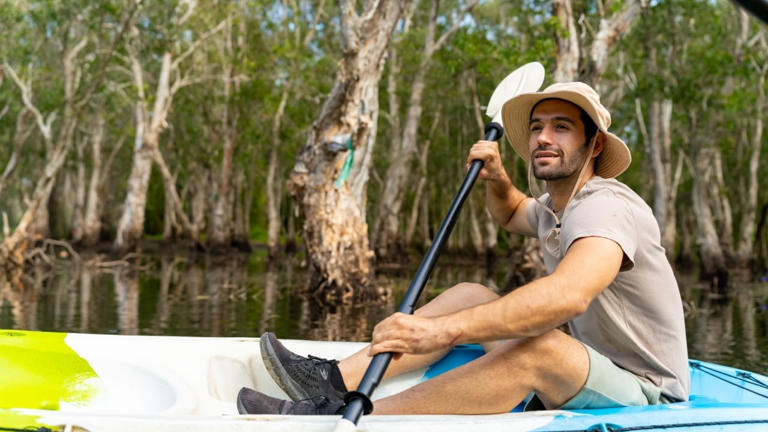
The Independent Uganda: You get the Truth we Pay the Price
- Afreximbank’s Export Development Fund opens office in Kigali
- Amb. Antonov: Russia will not run after US, begging for security cooperation
- How ICEA LION’s cutting-edge innovations won big at IRA 2024 Insurance Awards
SAFARI RALLY: Kenya Tourism Board taps into Uganda’s motorsports fervour
Eacop launches thermal insulation plant in tabora, tanzania.
- NSSF payouts insufficient for retirement-survey
- MPUUGA: I am not resigning, nor leaving NUP
- ICEA Lion empowering teens with social skills for a bright future
- Boeing CEO Dave Calhoun to step down as company faces intense safety scrutiny
- UNDP confirms Uganda’s Middle Income status
The Independent March 26, 2024 AFRICA , JOBS , NEWS , SPORTS , TOURISM Leave a comment
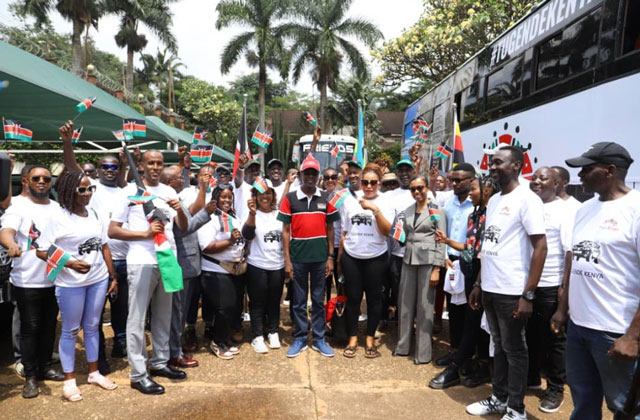
Kampala, Uganda | THE INDEPENDENT | The Kenya Tourism Board (KTB) is seizing the marketing opportunity presented by the upcoming WRC Safari Rally to promote destination Kenya and stimulate travel, especially in the East African region.
KTB Ag. Chief Executive Officer, John Chirchir says that the world-famous motorsport tournament has immense potential for tourism growth and is among the board’s key strategies to boost arrivals from the wider East African region.
This, he noted, goes by the increasing number of tourist arrivals from the neighboring East African countries which now rank among Kenya’s top source markets.
“The upcoming WRC Safari Rally is a prime opportunity to showcase Kenya and the East African region’s unique tourism offerings to motorsports enthusiasts and leisure travellers alike. A source market like Uganda now firmly ranks second to the USA in tourist arrivals to Kenya, having contributed 125,556 visitors in 2023 compared to 87,448 in 2022 – a 43.6% growth,” Chirchir said on March 26.
Chirchir added: “Tanzania and Rwanda also feature prominently among our top ten source markets. We want to further stimulate interest and travel in an important regional bloc for us.”
As part of this integrated experiential marketing campaign, KTB is hosting several motorsports fans from Uganda ahead of the WRC Safari Rally set to roar into action this week.

The 150 motorsports fans drawn from various rally groups among Uganda’s motorsports community would later be treated to a breakfast meet and greet in Naivasha ahead of their curated itineraries that will offer them a glimpse of the country’s diverse tourism offerings.
Chirchir noted that this initiative is aimed at capturing the interests of a well-defined niche market with high potential.
“There is no better way to experience the excitement of the WRC Safari Rally than being part of it. Uganda’s fervor for motorsports extends beyond its borders, influencing the broader African motorsports culture. We want to give the Uganda motorsports fans a first-hand feel of what Kenya has to offer beyond the adrenaline-filled rally tracks,” he said.
Besides marketing the East Africa region as a single tourism circuit, the KTB boss was optimistic about such initiatives in further complementing and boosting intra-Africa travel.
The Safari Rally is slated for March 28-31, KTB will be looking to boost destination visibility and showcase Kenya’s unique tourism offerings to motorsports enthusiasts and leisure travellers alike.
The board in partnership with the Ministry of Sports and the WRC recently hosted top drivers for an excursion trip to the Maasai Mara National Reserve as part of this integrated campaign to immerse key influencers in the quintessential Kenyan safari experience.
Tags KTB motor sport Safari Rally
Related Articles

UPDF SACCO ‘Wazalendo’ to hit shs.1trillion assets by 2025
March 26, 2024

Ssegirinya showing symptoms of recovery in Nairobi
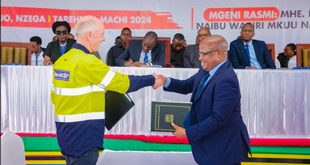
Leave a Reply Cancel reply
Your email address will not be published. Required fields are marked *
Save my name, email, and website in this browser for the next time I comment.
Notify me of follow-up comments by email.
Notify me of new posts by email.

VIDEO
COMMENTS
True safari specialists in Uganda. Best quality hotels, guides, 4x4. For the best price. We offer customized private Uganda safaris. Guides are highly trained and experienced.
Community tourism is a sustainable form of tourism that allows visitors to closely connect with the local communities visited. It aims at strengthening the relationships between the host country and the visitors, fostering opportunities for the local people wishing to engage more in the tourism industry. Most Safaris in Uganda have mostly been offering wildlife
COBATI- Community Based Tourism Initiative (www.cobatiuganda.org) is a local NGO in Uganda, established in 1998, registered as a not for -profit in 2002 to empower rural communities to supplement their household incomes through sustainable tourism and community development initiatives. The COBATI model of tourism revolves around individuals, households, communities, their cultures and the ...
UCOTA members run small community-based tourism enterprises such as accommodation, catering, tour guide, cultural music, dance and drama, community interaction and handcraft sales among others. Chairperson: Patrick Tumwijukye +256776 967 277. Executive Director: Hellen Lubowa +256772 417246 [email protected].
Uganda Community Tourism Association (UCOTA) is the official umbrella body that brings together and advocates for the interests of community tourism groups in Uganda to ensure that the local tourist host communities benefit from tourism. Since its inception, UCOTA's functions and scope of operations have grown tremendously across the country ...
Uganda offers many wonderful attractions including beautiful scenery, wildlife viewing, and mountain gorilla trekking. One of the most memorable experiences is a daytime or overnight visit to a village or homestead. ... COBATI's community tourism program includes a network of village homesteads in central and southwestern Uganda en route to ...
4 The focus for this paper is drawn from one element of a six-year collaborative project between the University of Manitoba, Canada and Makerere University, Uganda. The full project is designed to enhance rural livelihoods through community tourism in Uganda where 61% of Uganda's population lives in poverty (i.e., below US$1 per day) (UNDP ...
Engaging in community-based tourism initiatives in Uganda allows you to support these sustainable tourism practices and contribute positively to the well-being of the local people. A perfect community to visit is the Kataara Women's Poverty Alleviation Group (KWPAG) near Queen Elizabeth National Park in Katara Village. ...
The Bombo Community Tourism Initiative is a village-based tourism cluster made up of several homestays, a womens handcraft group, traditional dancers, and a mini cultural centre. COBATI implemented the project with financial support from the MTN Uganda Foundation. The initiative is community-owned by Nubians under their umbrella association, Uganda Nubian Consultative Forum.
COBATI is a non-profit tourism NGO established in 1998 to help rural Uganda communities in high tourism potential areas supplement household incomes through community tourism enterprises. The focus is mainly on empowering women through homestead tourism, handicraft production, and rural hospitality. Uganda visitorsWe identified a gap between mainstream tourism, rural villages near conservation ...
For a developing country such as Uganda, it is important to ensure that tourism revenue stays within the local economy and creates a positive impact for different communities, wildlife and future sustainability. Venture Uganda is proud to work with a number of community tourism initiatives which aim to achieve exactly these goals.
For long, tourism in Uganda has been focused on wildlife safaris, Gorilla trekking, and other touristic destinations. However, community tourism is a unique opportunity for the local community to participate and benefit from their natural and cultural resources.' 'Tourism development is therefore at the core of our operations,' says Vos.
Recent research examined how community tourism can improve rural livelihoods in Uganda (MacKay & Campbell, 2012) and if tourism might contribute to sustainable regional development in Africa's ...
In Uganda, community tourism is regulated by Uganda community tourism association (UCOTA) Uganda community tourism association through interpretation of policy to the local communities and collaboration with other government institutions such as the ministry of tourism and UTB. UCOTA is a membership organisation that partners with all tourism ...
Community-based tourism in Uganda primarily relies on the establishment of such organizations. In particular, a Community-based organization is an organization that aims at making desired improvements to a community's social health, well-being, and overall functioning. Community organization occurs in geographically, psychosocially ...
Visitors to community tourism projects experience a unique and authentic side of Ugandan life, as they eat traditional food, meet the villagers, play with the kids and are guided by experts who have lived here their whole lives. A community tour or homestay is sure to provide one of the most meaningful memories of your Ugandan holiday!
Responsible Travel in Uganda. Responsible community travel in Uganda specializes in community-based tourism in Uganda. Our emphasis is to link visitors and communities for homestay tourism, volunteer tourism, and support community initiatives. We believe that community-based tourism is the main concept for community transformation and we are ...
Ucota was formed in July 1998 to promote community-based tourism in Uganda. This form of tourism requires a great participation and support from local communities.
The Uganda Community Tourism Association (UCOTA) was established in July 1998, to empower local communities in sustainable development through small-scale tourism and handcraft enterprises, also known as Community Tourism. Community Tourism aims at involving the local people in the planning, decision-making and implementation of tourism ...
Community-based tourism (CBT) is intended mainly for underprivileged communities and is viewed as a form of tourism development that must be initiated, planned, owned, controlled, and managed by local community members, towards the achievement of their needs and wishes. ... This chapter investigates successful CBT projects in Uganda and Kenya ...
Uganda Community Tourism Association (UCOTA) is the official umbrella body that brings together and advocates for the interests of community tourism groups in Uganda to ensure that the local tourist host communities benefit from tourism. Since its inception, UCOTA's functions and scope of operations have grown tremendously across the country ...
But Uganda's new campaign also shows how African destinations can stand out more sustainably — pushing for local and regional tourism short-term, and preparing for more adventure and community ...
In Uganda, several communities welcome visitors interested in community-based tourism experiences. These communities offer opportunities for cultural immersion, interactions with residents, and participation in traditional activities. Here are some examples of communities that can be visited on community-based tours in Uganda: Batwa Communities:
KAMPALA, March 26 (Xinhua) -- Uganda's tourism authorities have said the country expects to increase annual tourism revenue to about 1.9 billion U.S. dollars and increase inbound tourism revenue ...
A source market like Uganda now firmly ranks second to the USA in terms of tourist arrivals to Kenya, having contributed 125,556 visitors in 2023 compared to 87,448 in 2022 - a 43.6% growth.
KAMPALA, March 26 (Xinhua) -- Uganda's tourism authorities have said the country expects to increase annual tourism revenue to about 1.9 billion U.S. dollars and increase inbound tourism revenue per visitor from 1,052 dollars to 1,500 dollars. This was revealed by Ugandan Minister of Tourism, Wildlife and Antiquities Tom Butime, who launched ...
Text size. Uganda is suffering a steep decline in its number of lions following a 45 percent slump in the past 20 years, the tourism and wildlife ministry said on Tuesday. That tailoff has seen ...
thoughtful development of tourism as crucial for conserving Uganda's wildlife while simultaneously sustaining the integrity of Uganda's diverse cultures (Government of Uganda, 2000, 2004). As a result, community conceived alternative tourism development strategies are needed to lead rural development and avoid dependency (Lepp, 2008).
Simultaneously, ecotourism is a powerful force for local communities, ensuring that the benefits of tourism reach the people who call these pristine destinations home. It fosters community ...
A source market like Uganda now firmly ranks second to the USA in tourist arrivals to Kenya, having contributed 125,556 visitors in 2023 compared to 87,448 in 2022 - a 43.6% growth," Chirchir said on March 26. Chirchir added: "Tanzania and Rwanda also feature prominently among our top ten source markets. We want to further stimulate ...
Idris Elba and his Sherbro partner Siaka Stevens (L) have signed a deal with Octopus Energy to build Sierra Leone's first wind farm. This is an exciting prospect for Sierra Leone, where only 28% ...